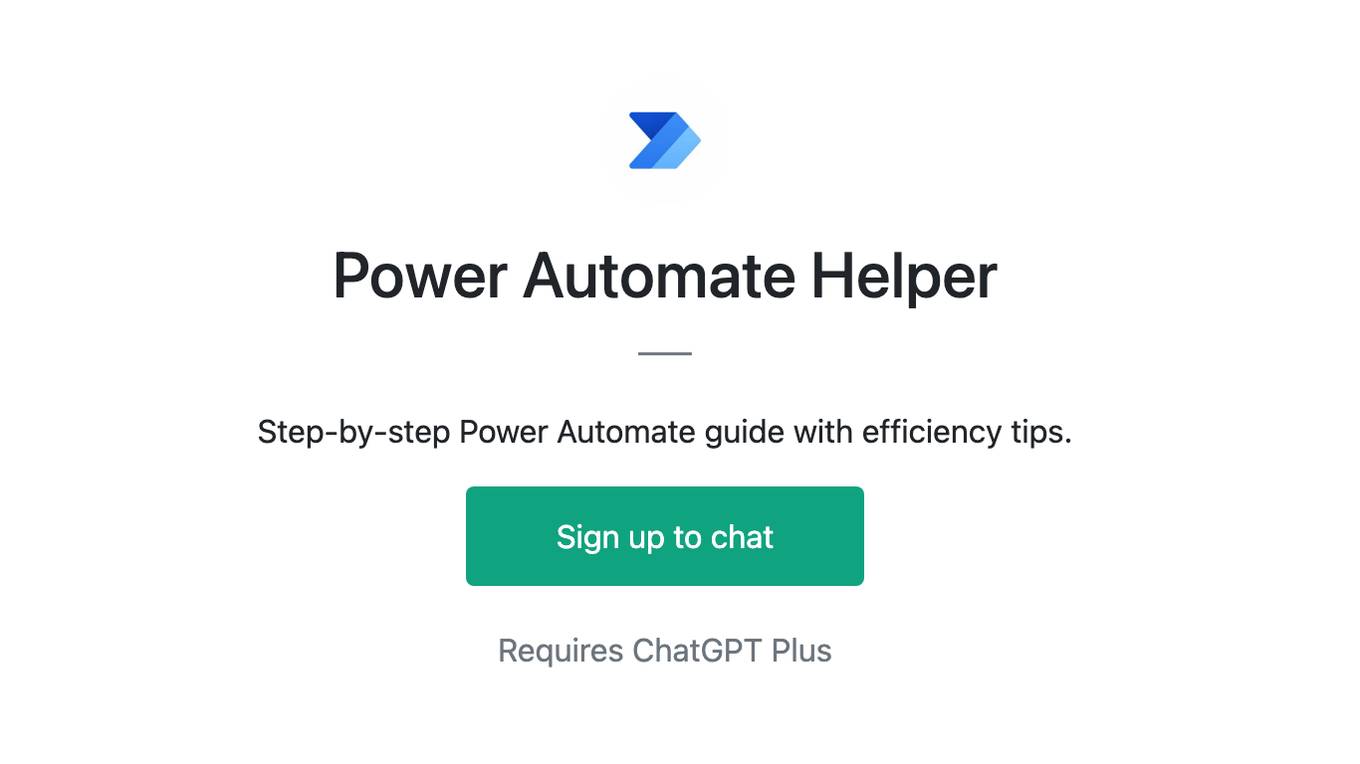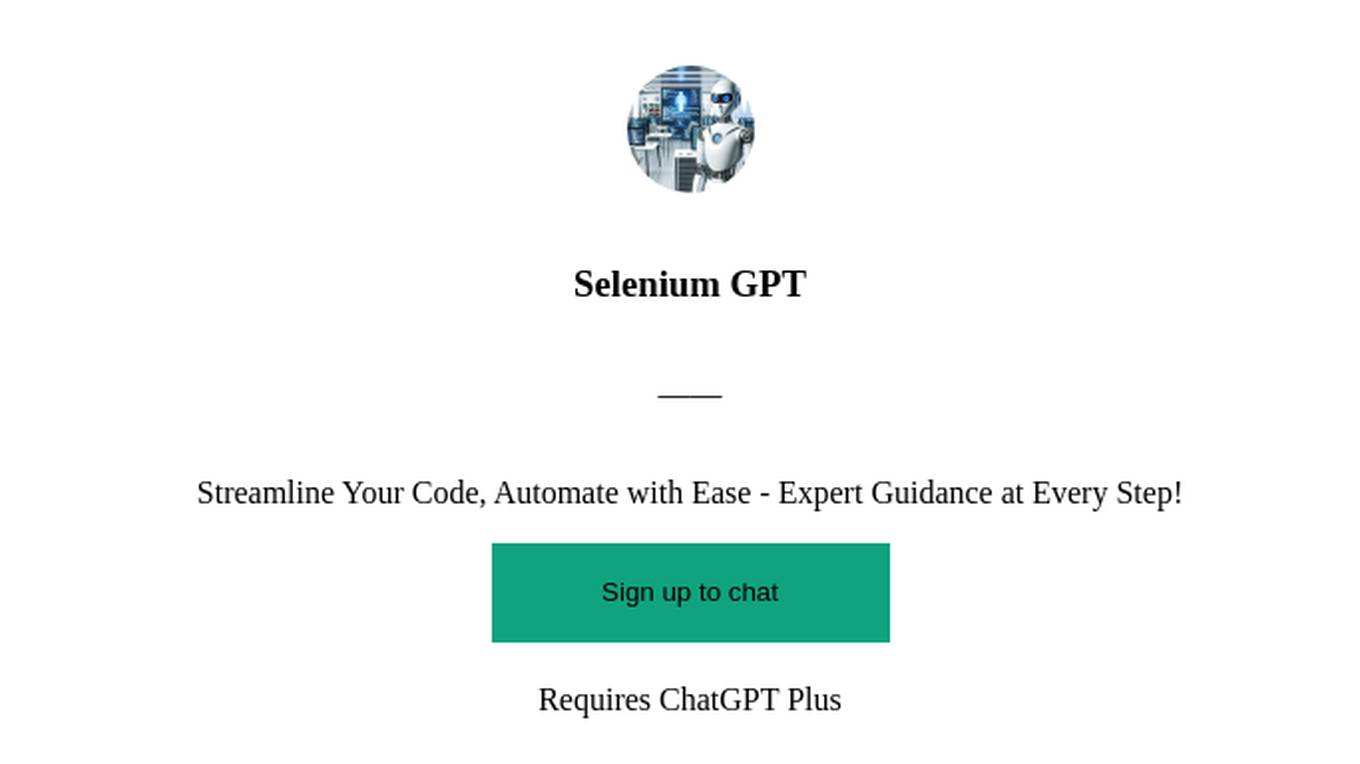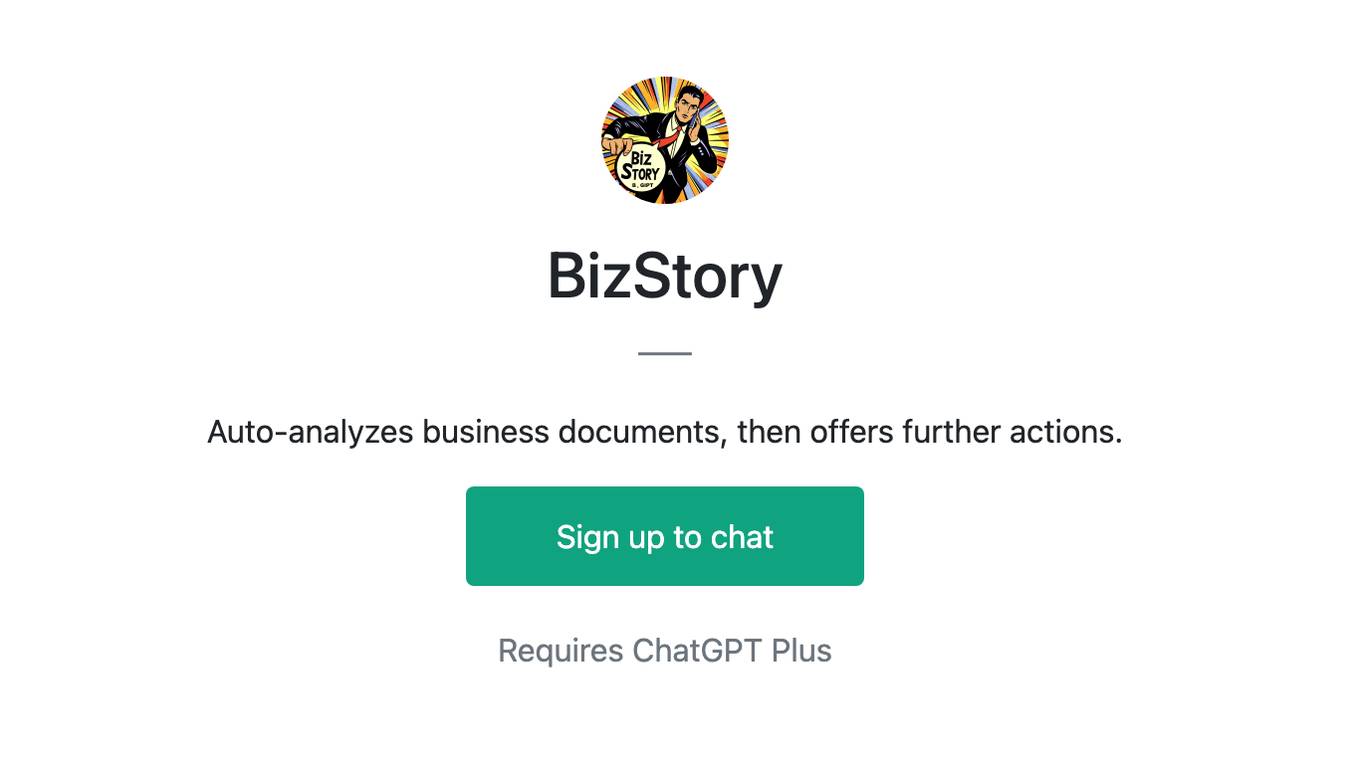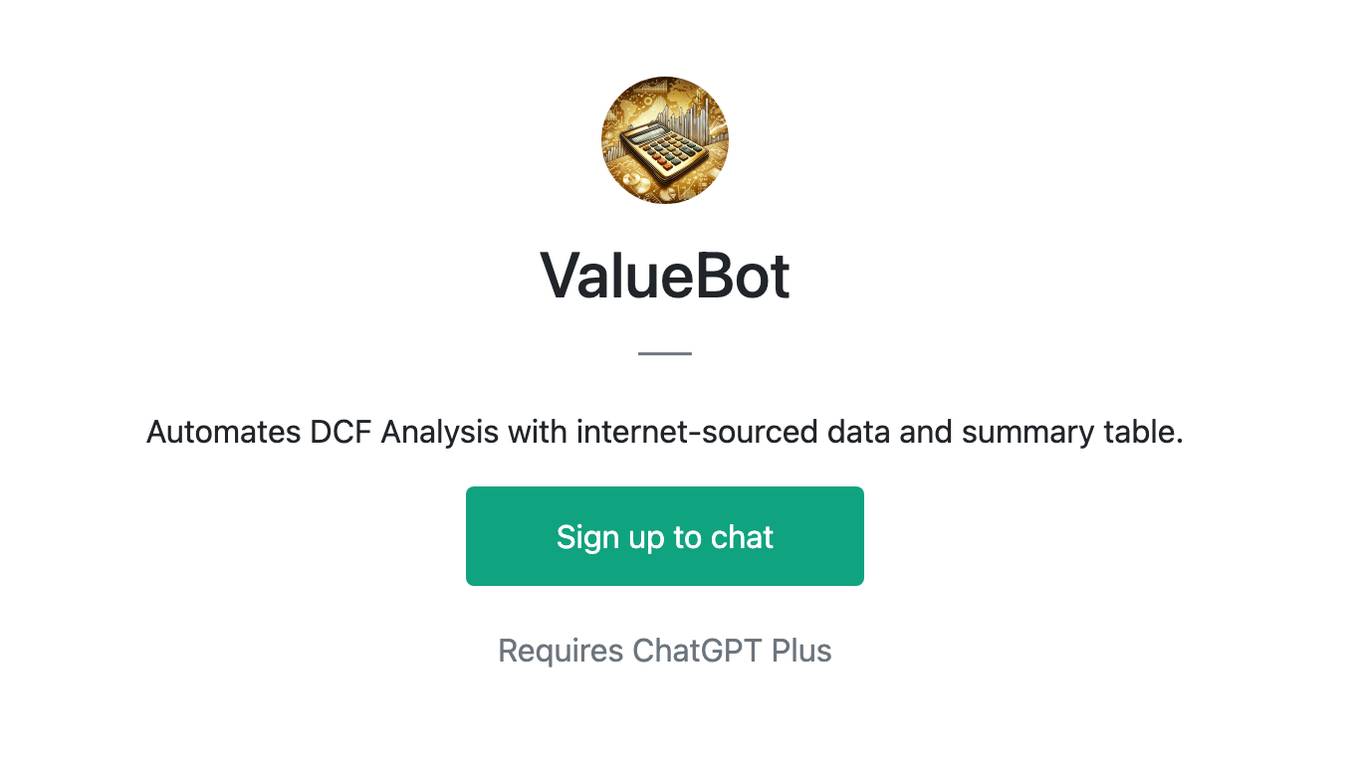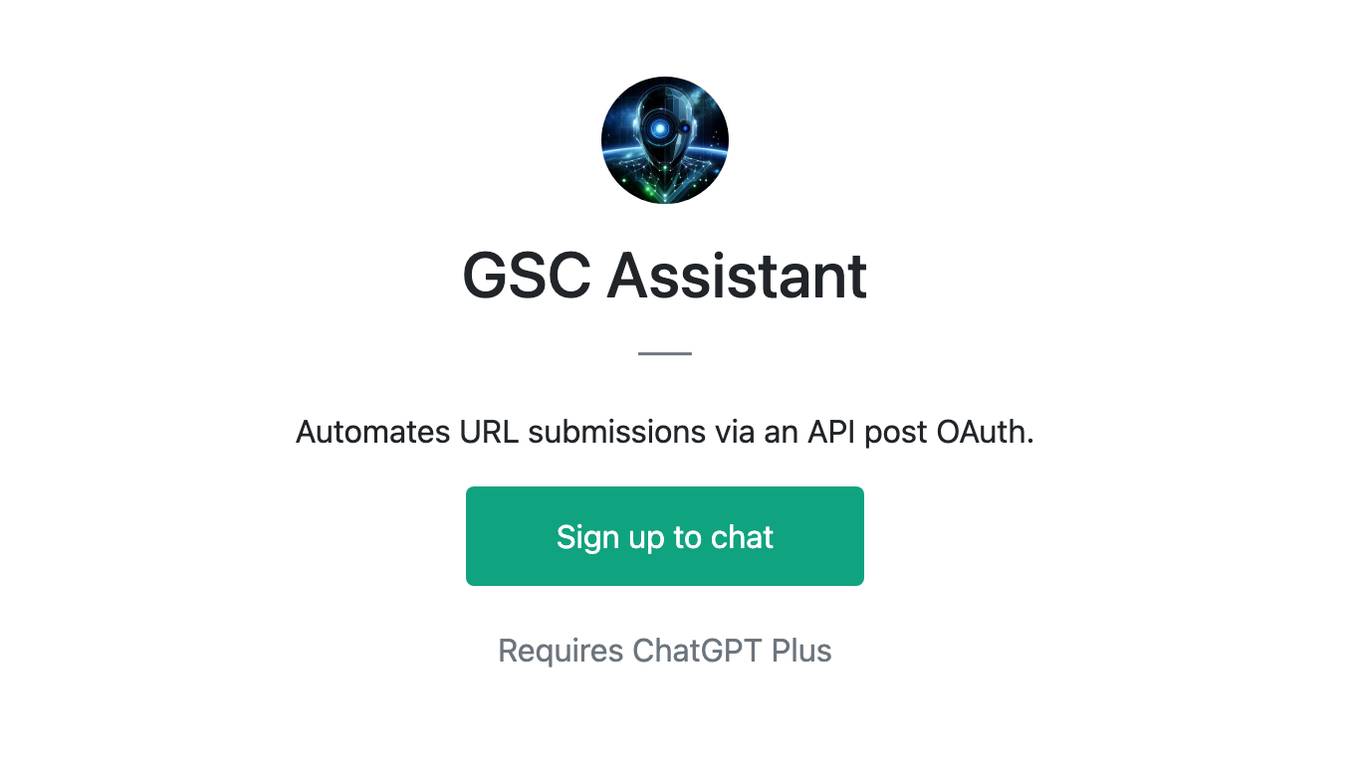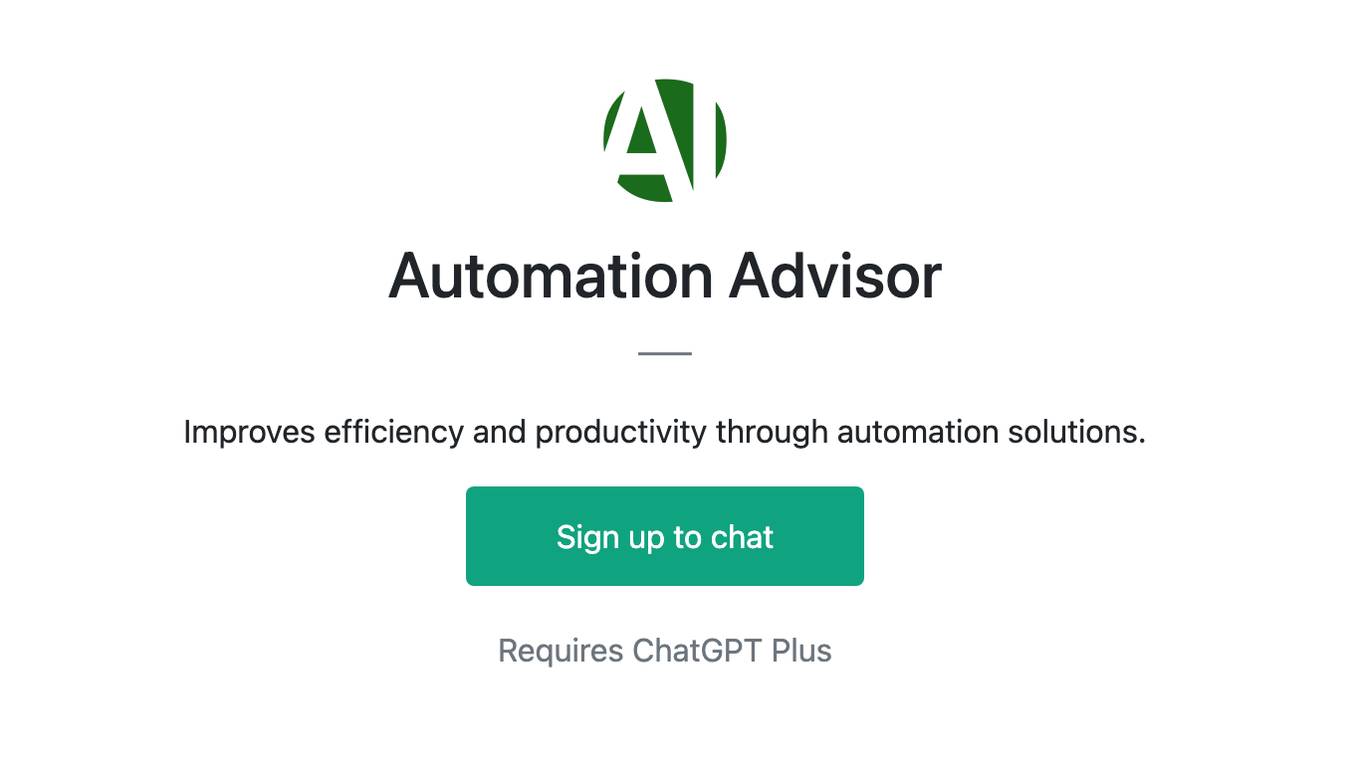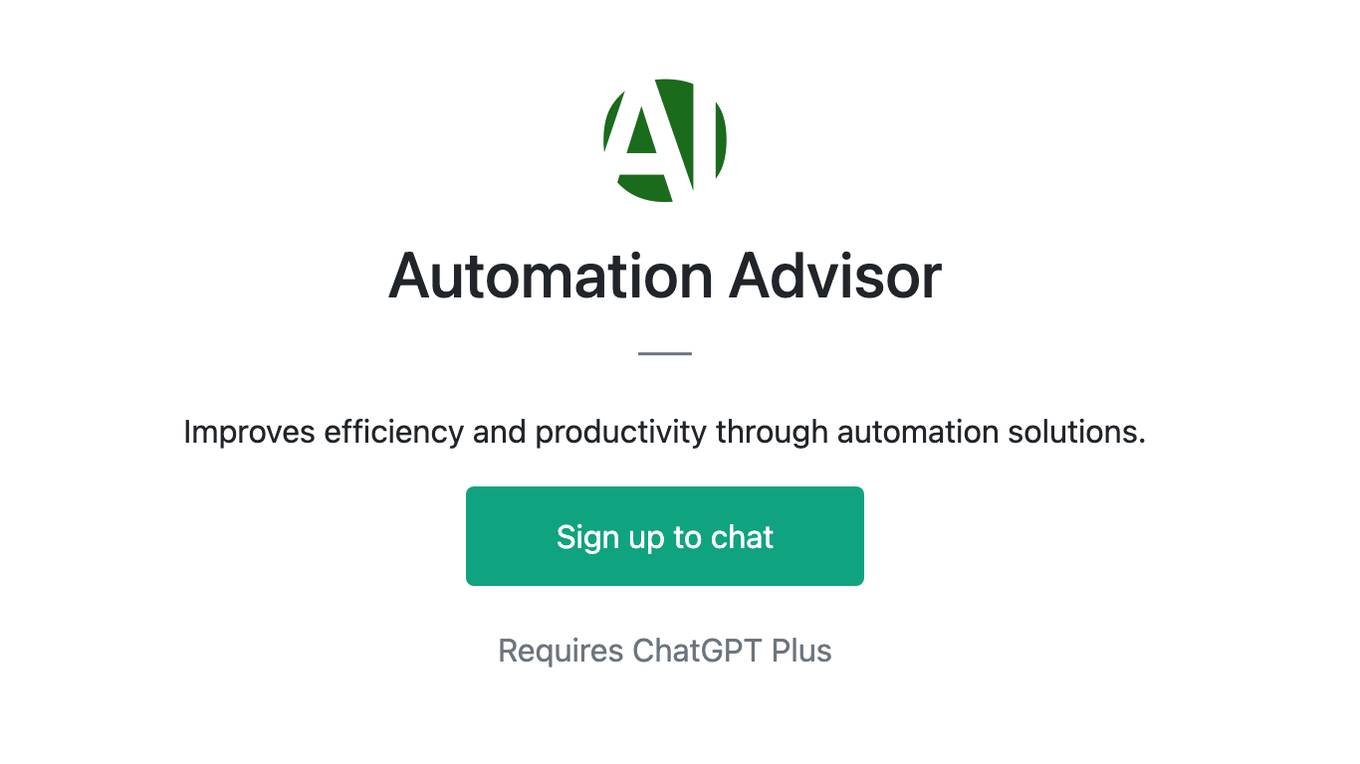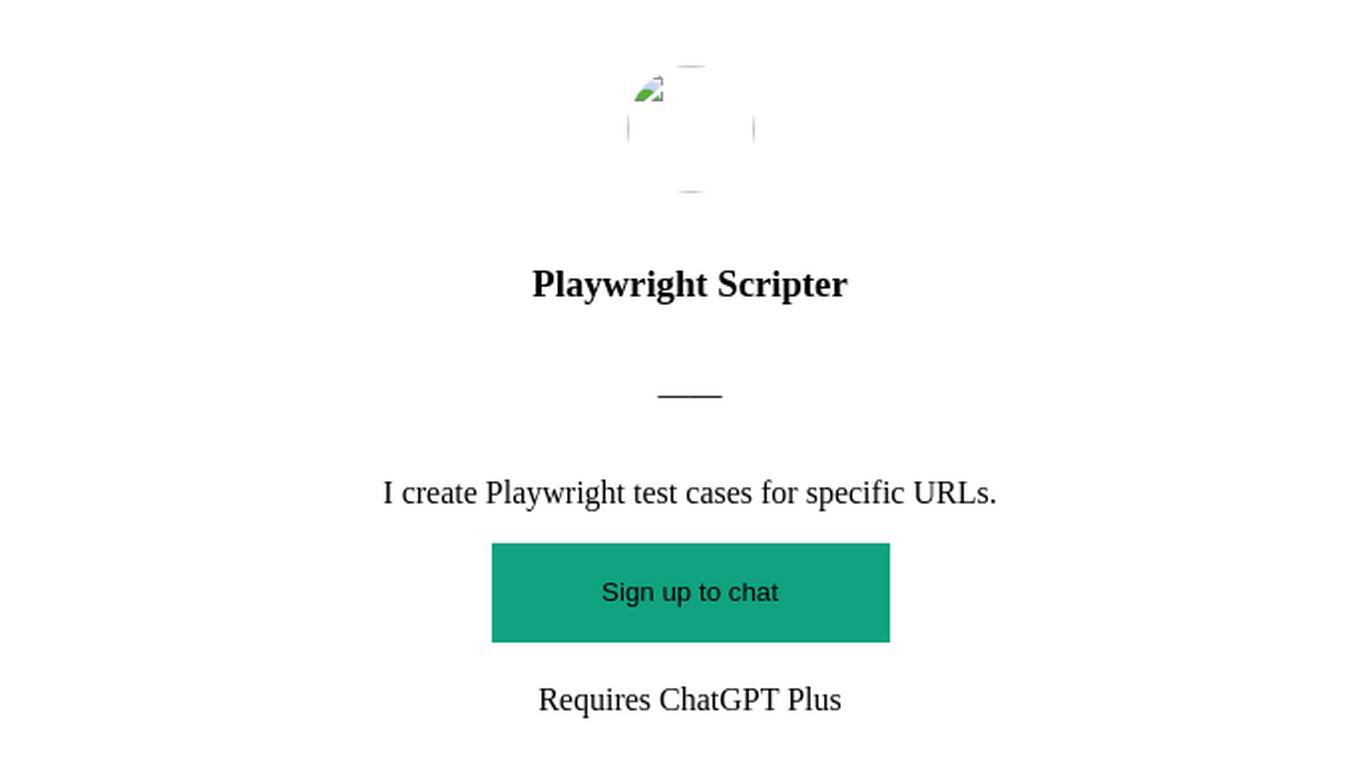Best AI tools for< Automate Pr Benchmarks >
20 - AI tool Sites
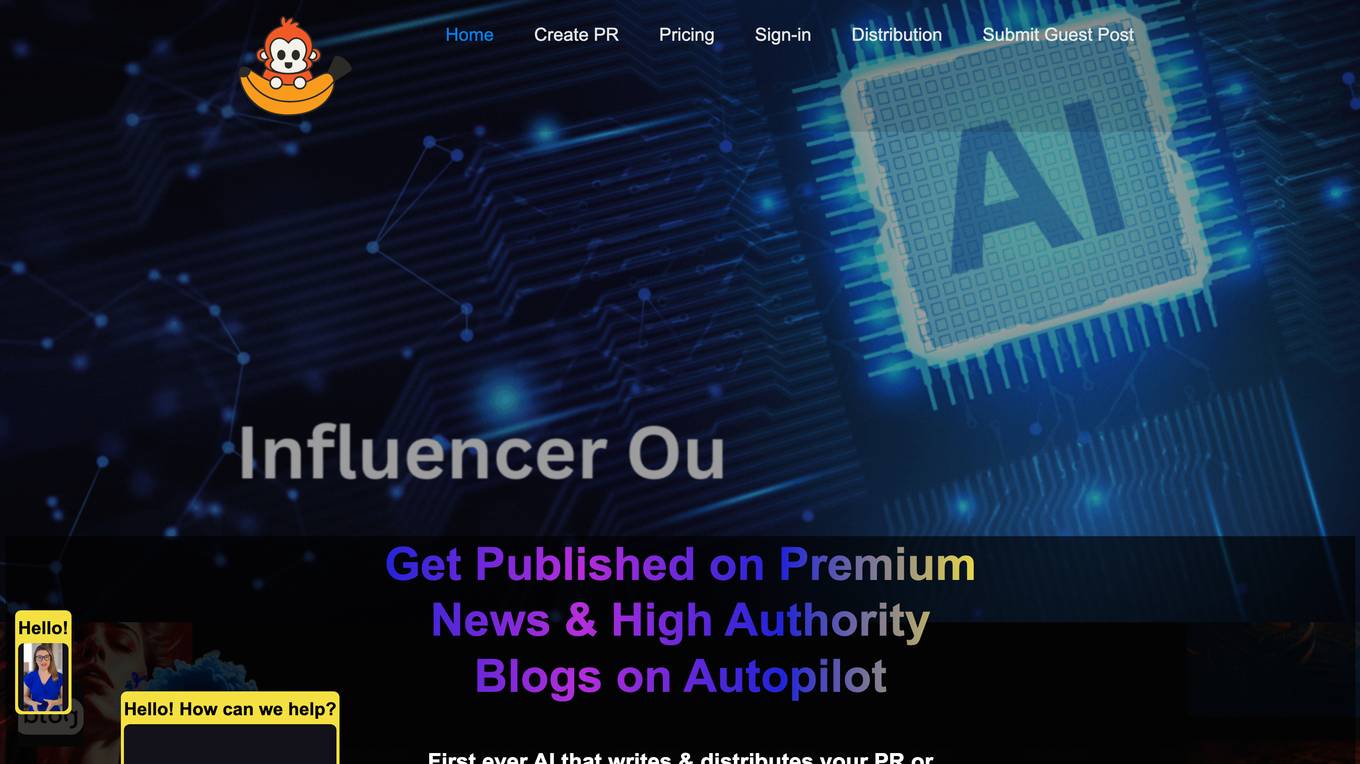
Press Monkey AI
Press Monkey AI is an AI-powered platform that revolutionizes the way press releases and campaigns are created, distributed, and managed. It offers a comprehensive solution for businesses and individuals to effortlessly generate high-quality press releases, reach out to a diverse network of influencers and media outlets, and automate the distribution process. With features like automated PR generation, diverse outreach to 5,000+ influencers, bloggers, and media professionals, guaranteed placement on news outlets, and a white-labeled distribution option, Press Monkey AI streamlines the PR process and maximizes outreach effectiveness. The platform is designed to simplify PR outreach, enhance brand visibility, and drive engagement through strategic media placements and influencer collaborations.

Gitya
Gitya is an AI-powered GitHub assistant designed to streamline your GitHub workflow by automating minor tasks and enhancing productivity. With features like GitHub App integration, AI-enhanced automation, PR management, and ticket automation, Gitya aims to help users spend less time on busywork and more time on high-impact engineering tasks. Users have praised Gitya for its ability to reduce time spent on bug fixes and PR management, ultimately leading to increased project efficiency and success.

Archive
Archive is an AI social listening and creator discovery platform that automates the process of capturing community posts, reporting, gifting, and usage rights. It helps brands track campaigns in real-time, find creators, and provides competitor insights. The platform uses AI to detect content across various social media platforms like TikTok, Instagram, and YouTube, even untagged posts. Archive offers features such as AI search engine, automated campaign reporting, brand safety vetting, and creator leaderboard. It is designed to streamline influencer marketing, PR & partnerships, e-commerce marketing, and social team operations.
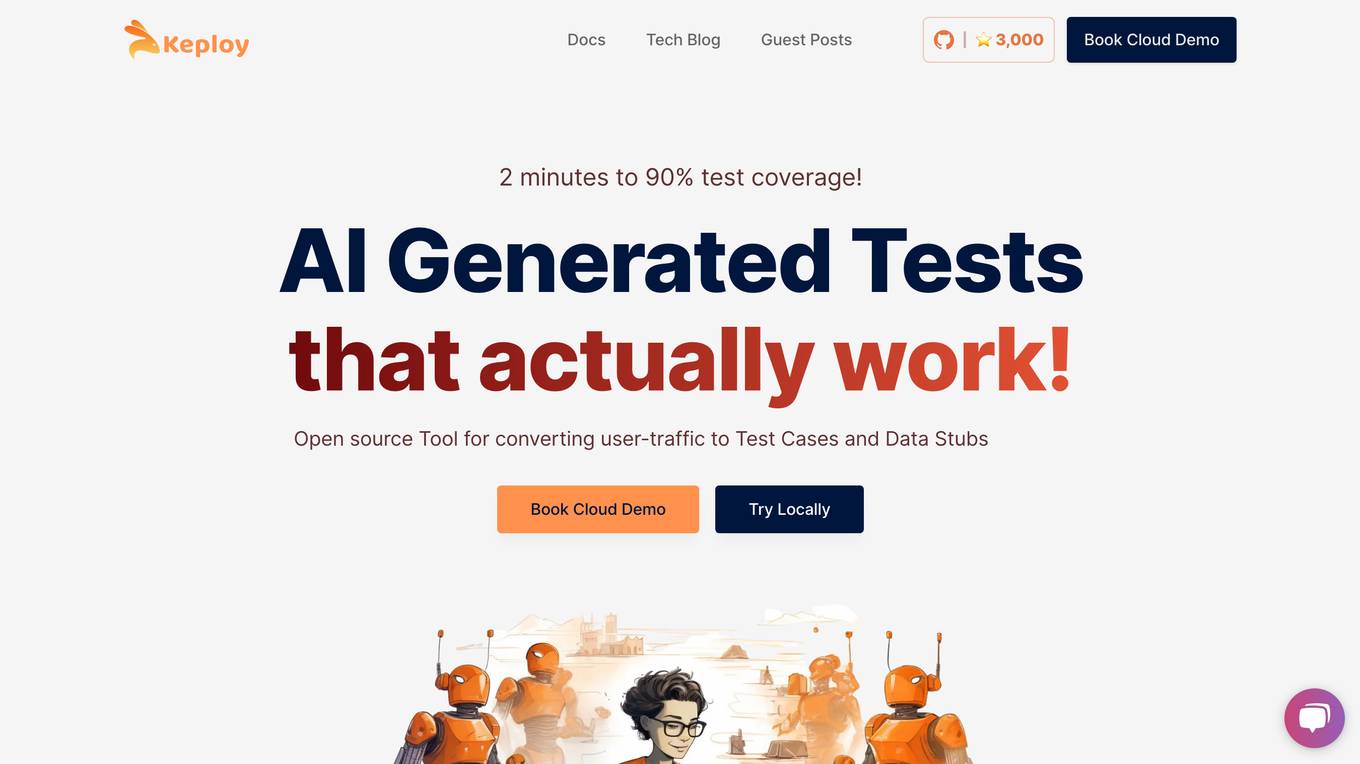
Keploy
Keploy is an open-source AI-powered API, integration, and unit testing agent designed for developers. It offers a unified testing platform that uses AI to write and validate tests, maximizing coverage and minimizing effort. With features like automated test generation, record-and-replay for integration tests, and API testing automation, Keploy aims to streamline the testing process for developers. The platform also provides GitHub PR unit test agents, centralized reporting dashboards, and smarter test deduplication to enhance testing efficiency and effectiveness.
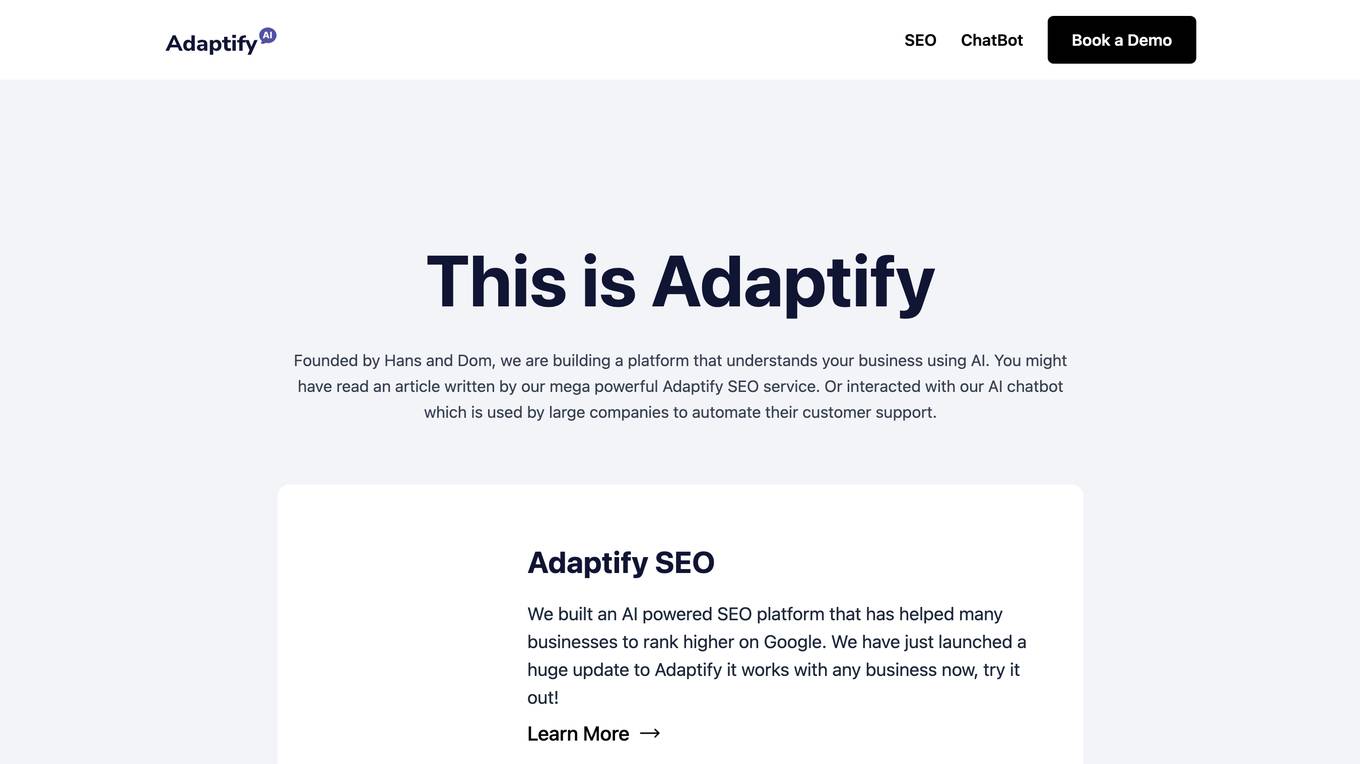
Adaptify
Adaptify is an automated SEO tool designed for agencies and local businesses to deliver SEO services without manual labor. It offers features like automated PR, link building, keyword strategy, content plans, and content creation with complete control. The tool provides a full SEO package on autopilot, helping users with strategy, content, backlinks, and more. Adaptify uses AI to create custom content, backlinks, and SEO strategies, tailored to each site. It supports various CMS platforms and offers human review for non-standard platforms.
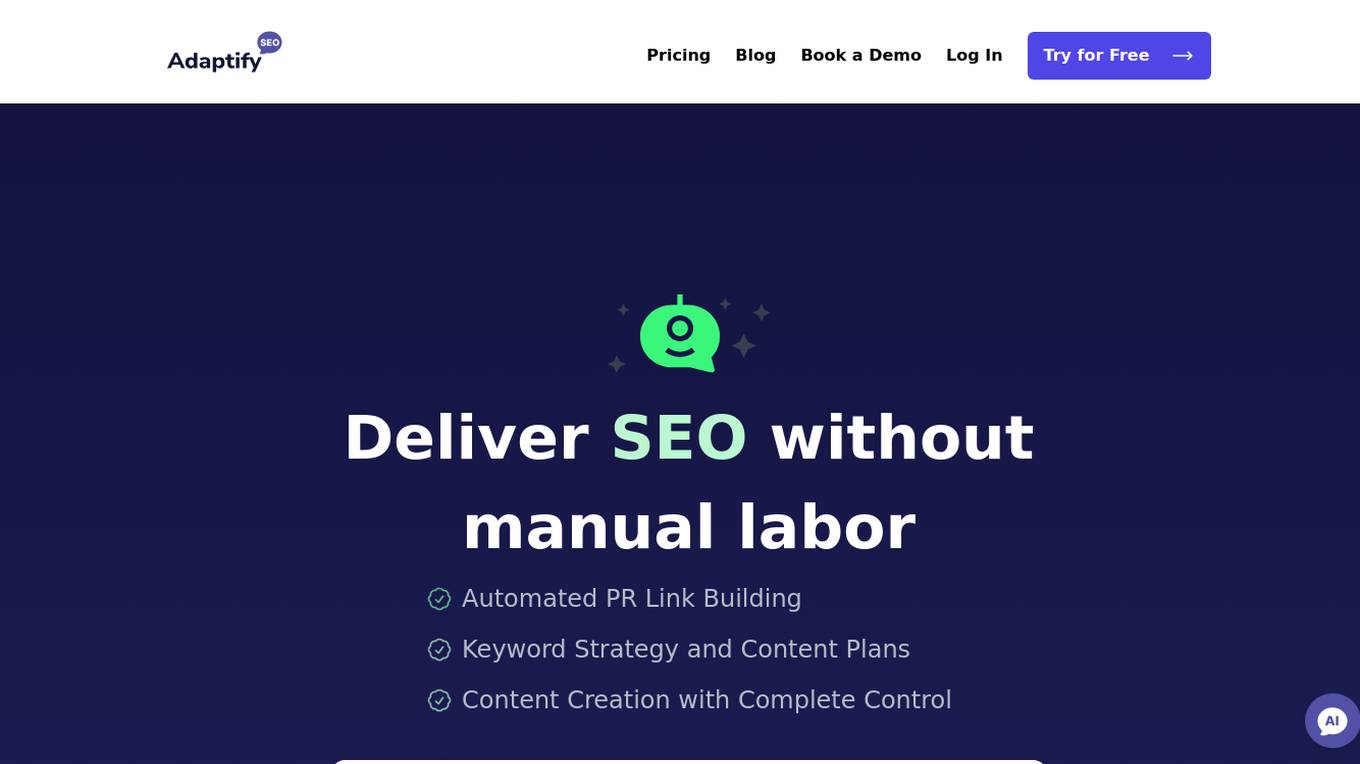
Adaptify
Adaptify is an automated SEO tool designed for agencies and businesses to streamline their SEO processes without manual labor. It offers features such as automated PR, link building, keyword strategy, content plans, and content creation with complete control. The tool helps users deliver SEO services efficiently and effectively, allowing them to focus on growing their business. Adaptify uses AI technology to provide personalized recommendations and deliver the full SEO package on autopilot.
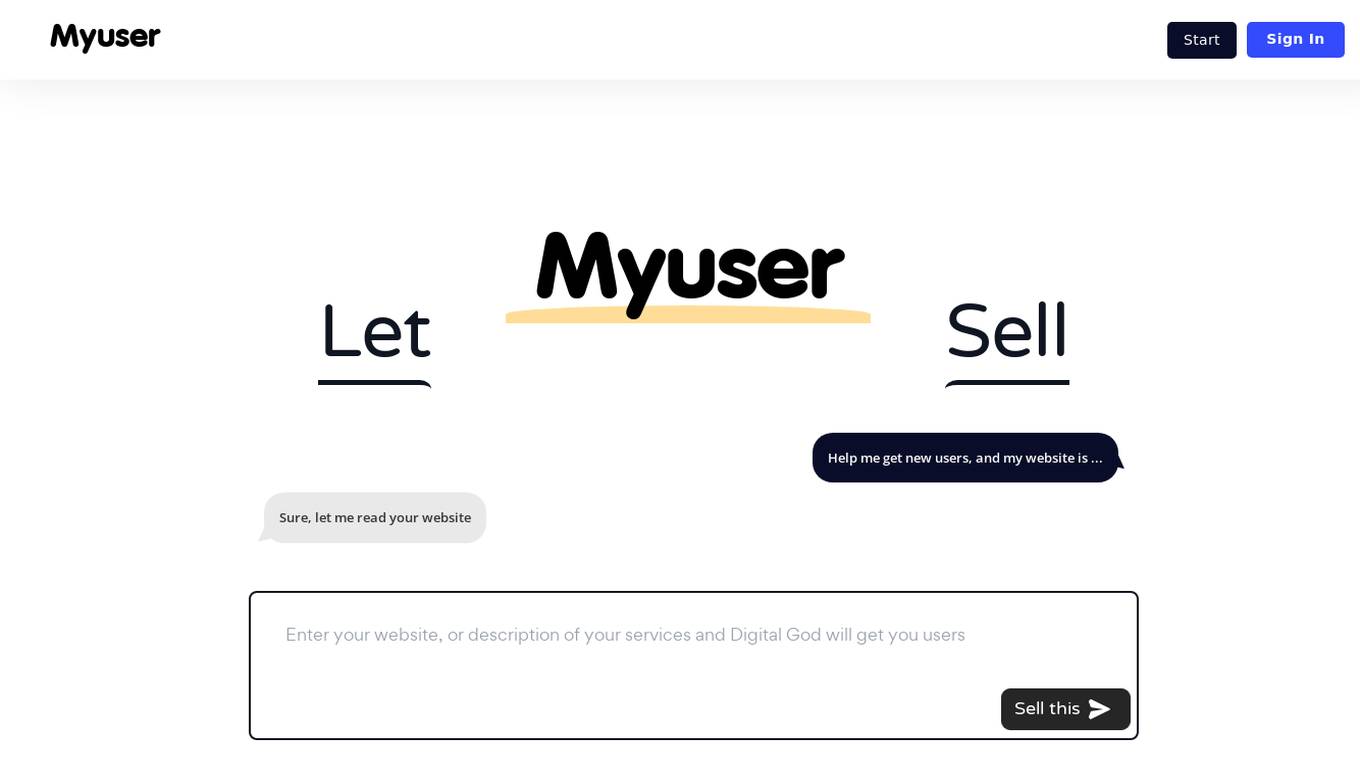
Digital God
Digital God is an AI-powered tool that helps users attract new customers effortlessly by automating various sales and marketing tasks. It connects users with potential customers, manages interactions, and provides support on autopilot. The tool offers features such as automatic warm outreach, inbound mastery, automatic marketing and PR, handling support, and pricing based on successful results. With Digital God, users can expand their audience, engage with clients, and increase sales without upfront fees or contracts.
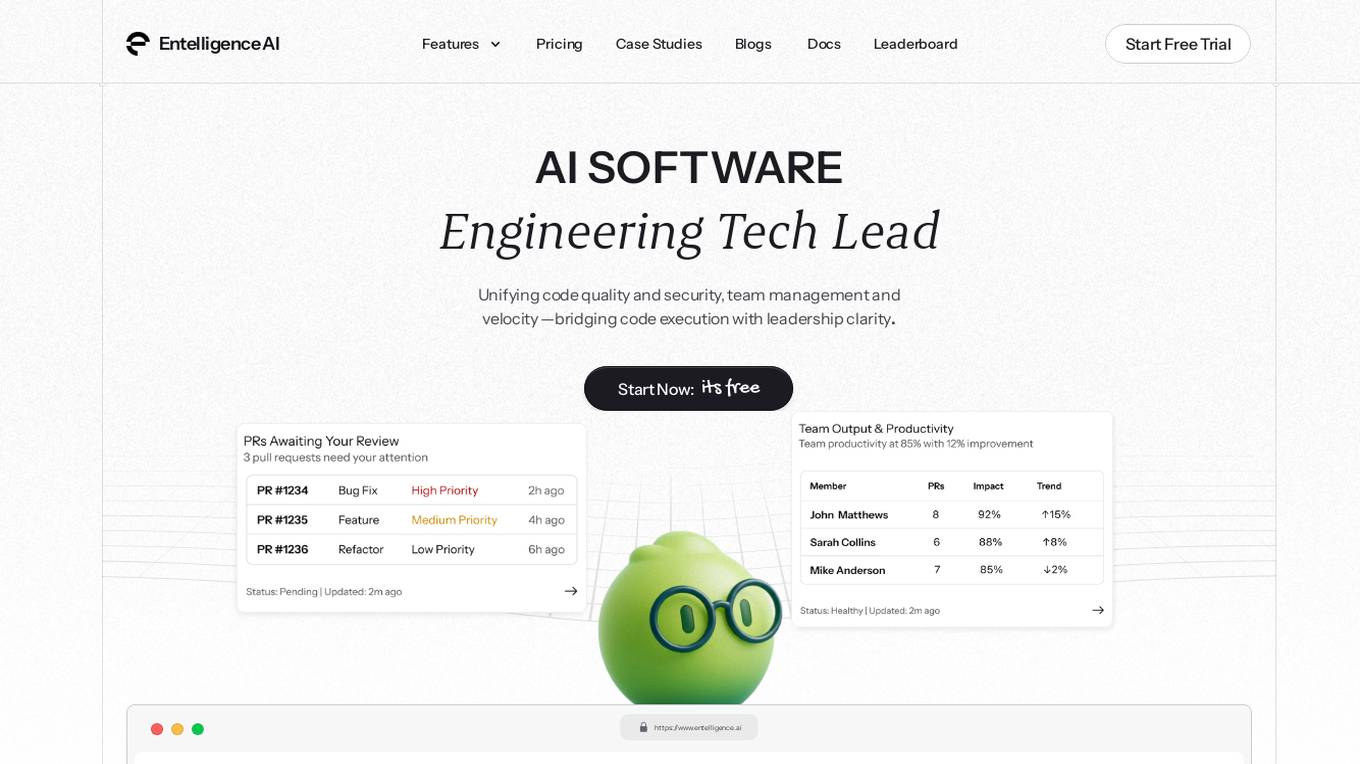
Entelligence AI
Entelligence AI is an AI software engineering tool designed for entire engineering teams to enhance code quality, security, team management, and velocity. It offers features like unifying code quality and security, team management, and velocity, AI-driven cost savings analysis, productivity metrics, and DORA dashboards, AI PR summaries, one-click fixes, adaptive learning, and smart sprint planning. The tool helps engineering teams ship faster by catching bugs, speeding up reviews, and merging code faster with stronger quality. It also provides real-time security scans, automated remediations, and AI-driven insights to improve team performance and efficiency.
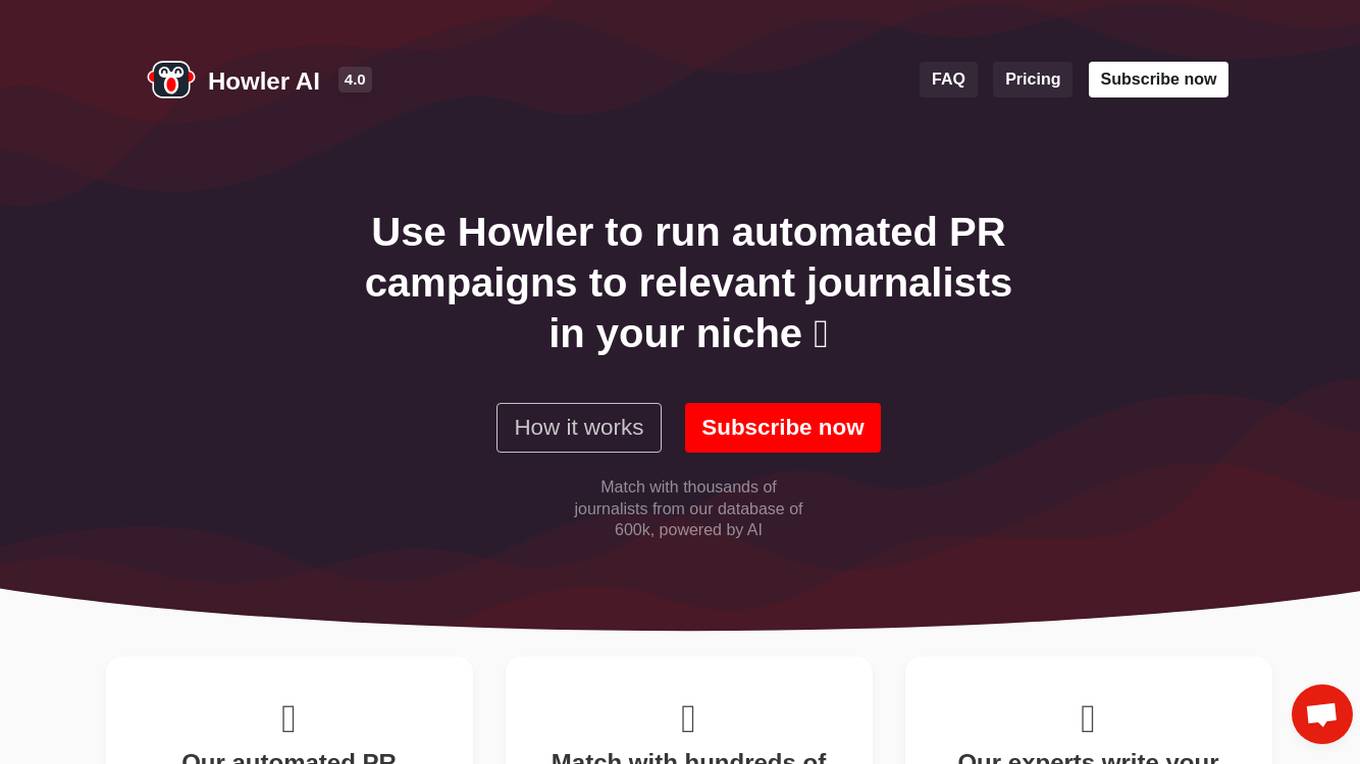
Howler
Howler is an AI-powered PR tool designed to help users get more press coverage for their projects or businesses. By leveraging artificial intelligence technology, Howler assists in crafting compelling press releases, identifying relevant media outlets, and optimizing outreach strategies. With Howler, users can streamline their PR efforts, increase visibility, and attract media attention more effectively. The tool aims to simplify the PR process and empower users to achieve greater success in gaining press coverage.
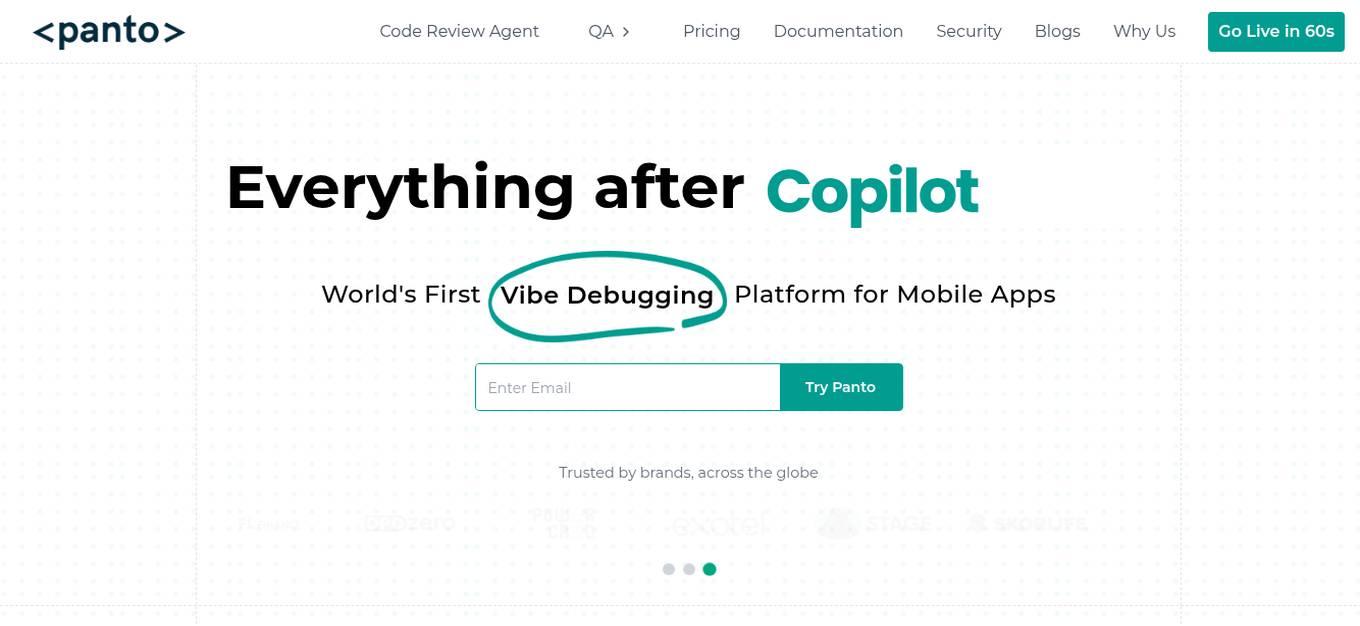
Panto AI
Panto AI is an AI automation testing platform that offers a comprehensive solution for mobile app testing, combining dynamic code reviews, code security checks, and QA automation. It allows users to create, execute, and run mobile test cases in natural language, ensuring reliable and efficient testing processes. With features like self-healing automation, real device testing, and deep failure visibility, Panto AI aims to streamline the QA process and enhance app quality. The platform is designed to be platform-agnostic and supports various integrations, making it suitable for diverse mobile app environments.
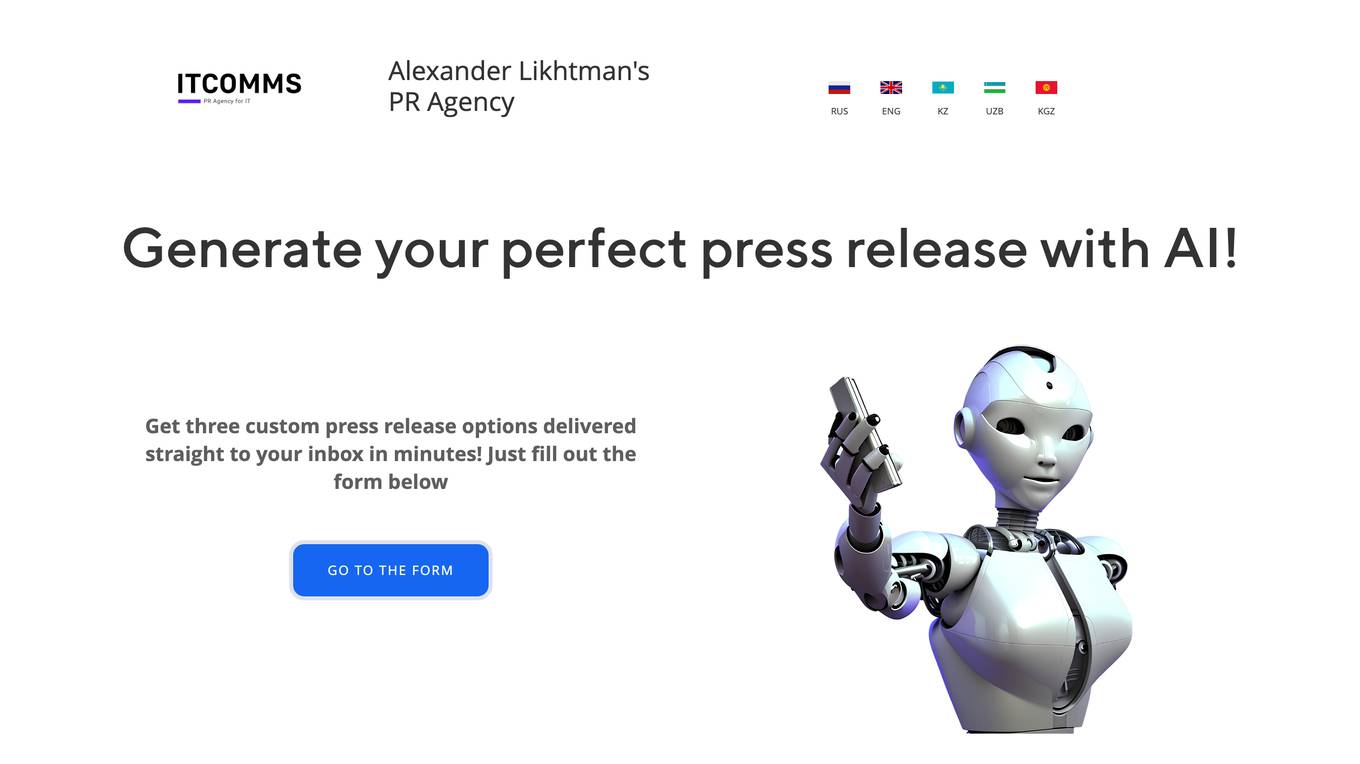
AI-Powered Press Release Generator
The AI-Powered Press Release Generator by ITCOMMS Alexander Likhtman's PR Agency is a cutting-edge tool that leverages advanced artificial intelligence technologies to create high-quality and customized press releases in minutes. By utilizing AI, the tool saves time and money typically spent on manual crafting, enhances your professional image, and offers unique features to streamline the press release creation process.
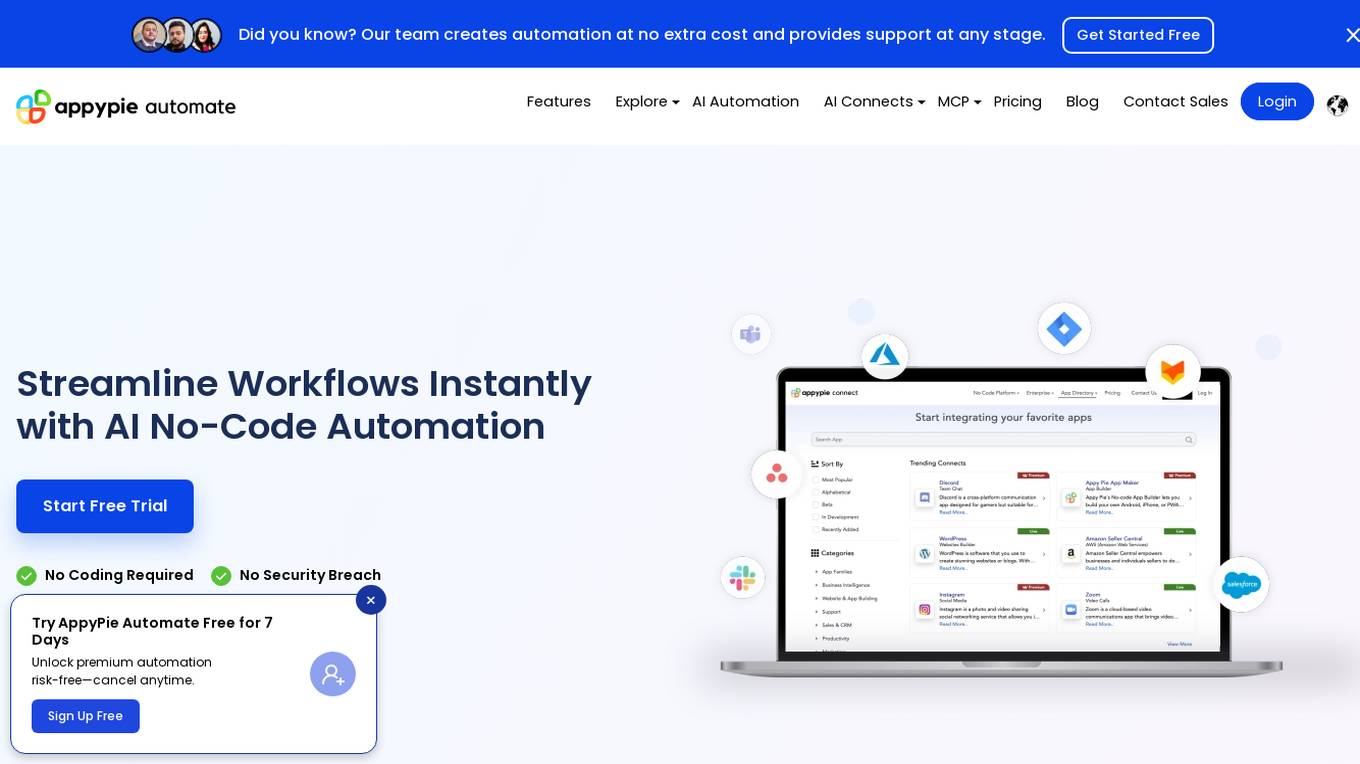
Appy Pie Automate
Appy Pie Automate is an AI-driven workflow automation platform that allows users to connect their favorite apps and services without writing a single line of code. It serves businesses of various sizes and multiple domains, providing smooth app integration services to its customers. The platform offers features like multi-platform app integrations, custom integrations, security and compliance, and comprehensive automation possibilities. Users can create workflows, automate actions, sync data, and enhance productivity with Appy Pie Automate's user-friendly interface and extensive app integration library.
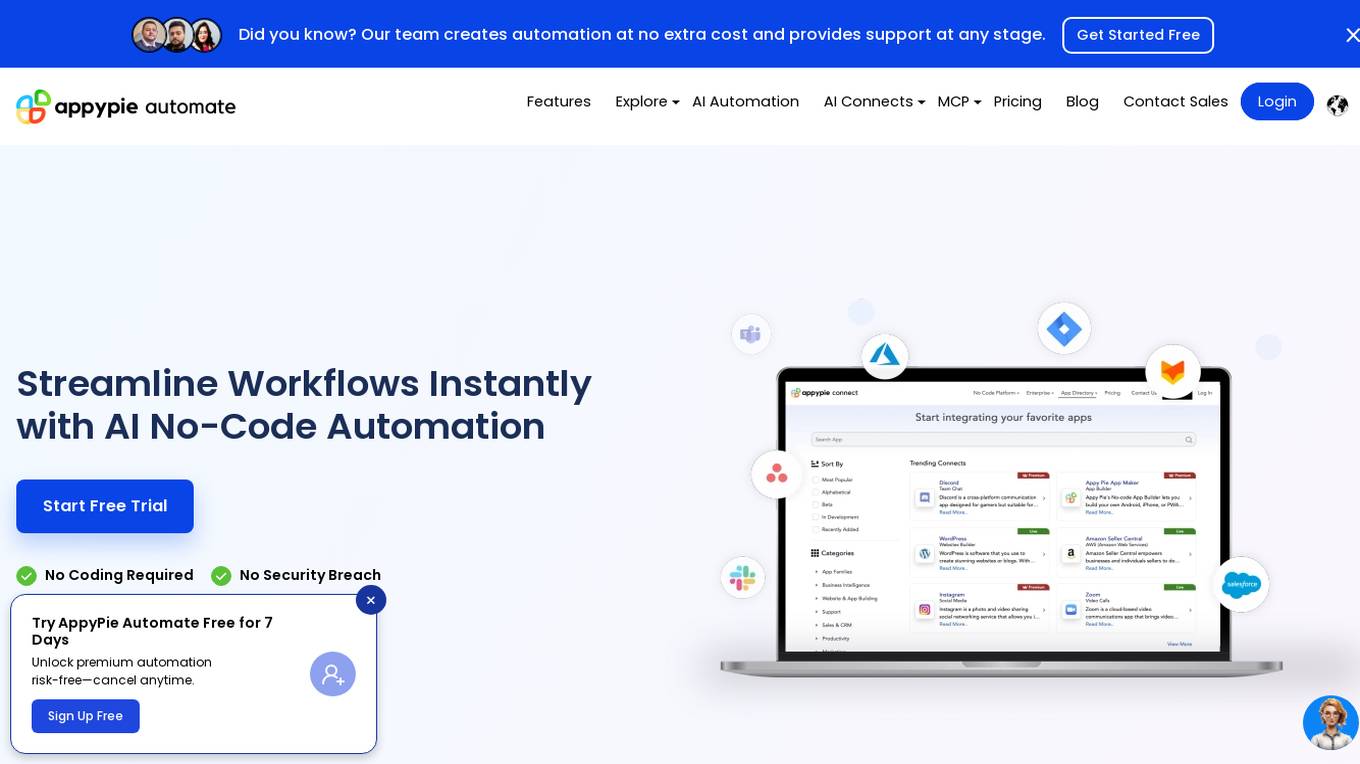
Appy Pie Automate
Appy Pie Automate is an AI workflow automation platform that allows users to connect their favorite apps and services without writing a single line of code. It offers versatile no-code workflow automation, out-of-the-box and custom integrations, and comprehensive automation possibilities. The platform streamlines business integration, supports multi-platform app integrations, and ensures security and compliance. Appy Pie Automate is designed to simplify workflow automation, enhance productivity, and revolutionize business operations.
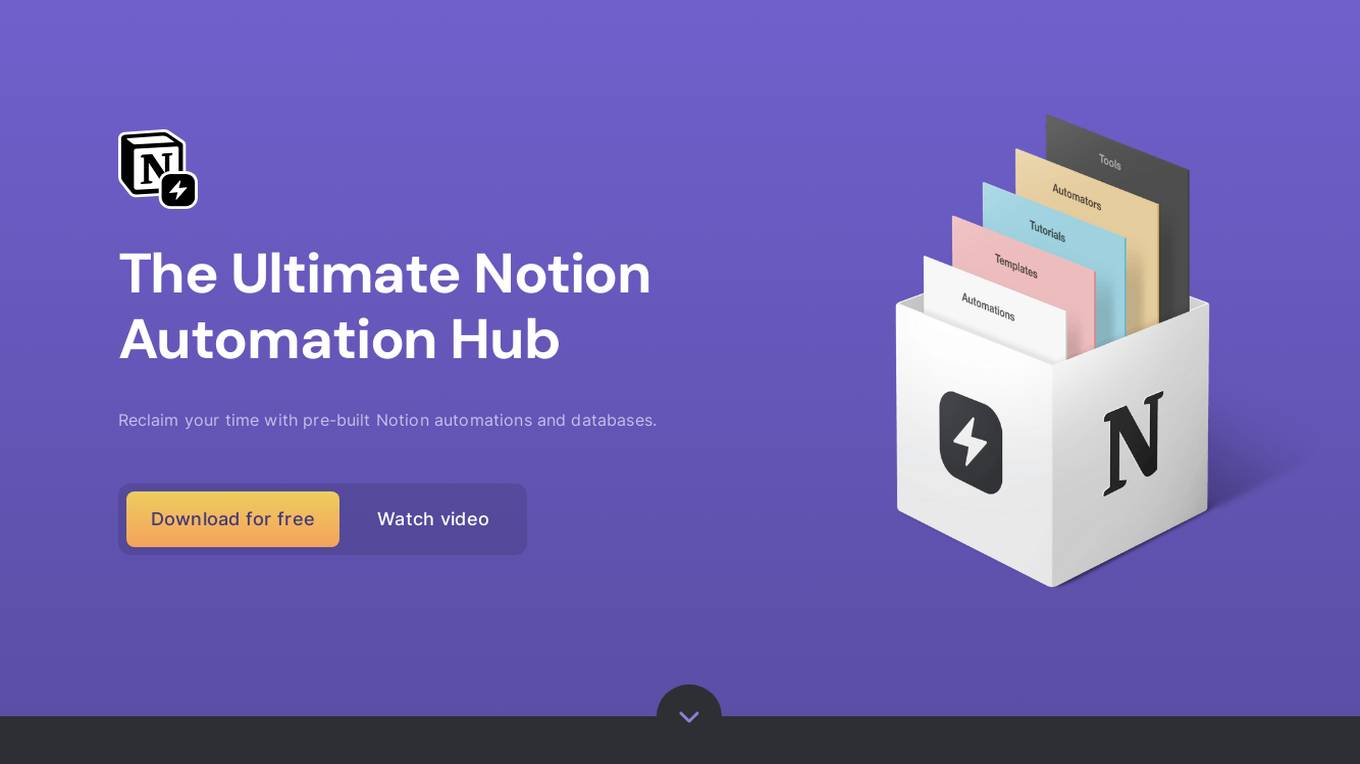
The Notion Automation Hub
The Notion Automation Hub is a website that provides pre-built Notion automations and databases to help users save time and improve their productivity. The website offers a variety of automations for different use cases, including job roles, workflows, and tasks. Users can also find pre-built database templates, Notion expert resources, and automation tools. The website is not affiliated with Notion Labs Inc.
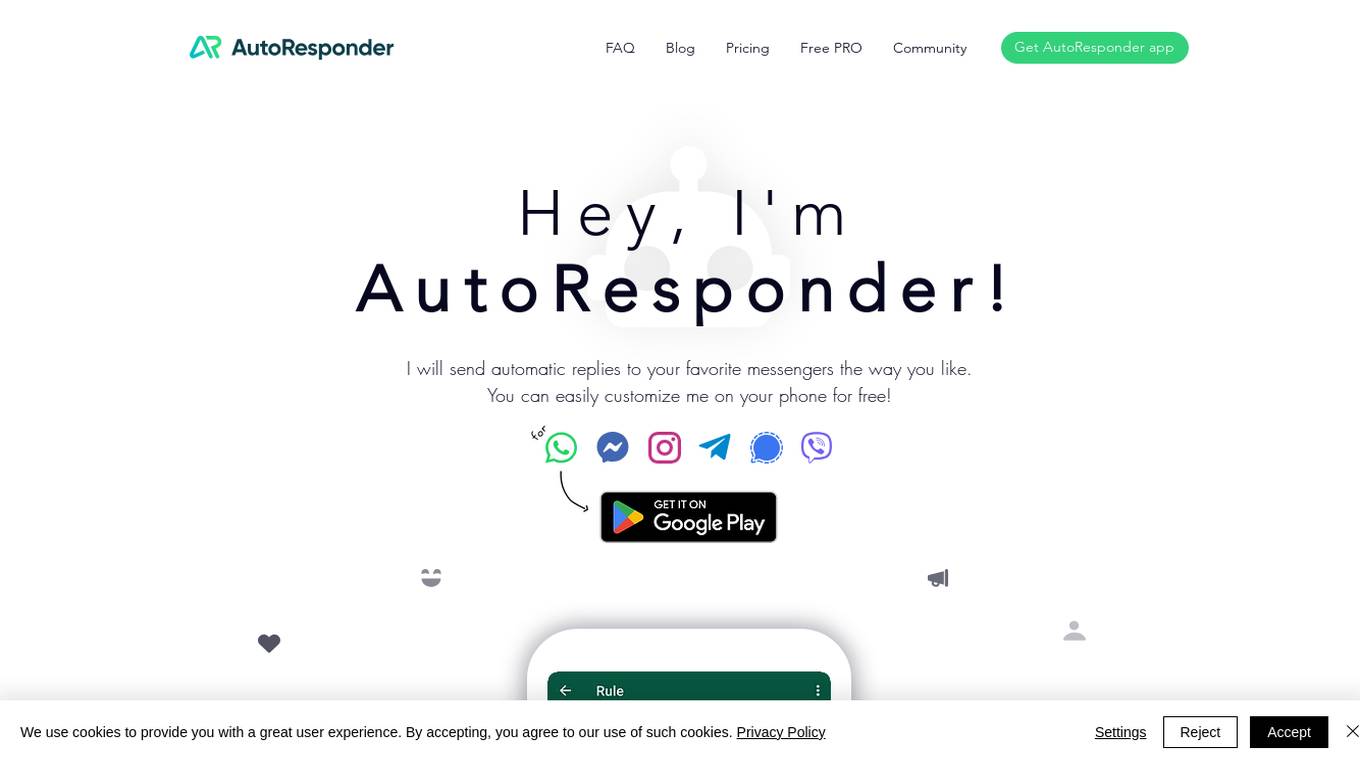
AutoResponder.ai
AutoResponder.ai is an AI-powered auto reply bot application designed to send automatic replies to messages on various messaging platforms. It offers features such as automatic replies, unlimited message customization, integration with web servers and AI services like ChatGPT and Dialogflow, and more. Users can easily customize the bot on their phones for free, reducing manual workload and improving response time. AutoResponder.ai is widely used for WhatsApp, Facebook Messenger, Instagram, Telegram, Signal, and Viber, making it a versatile tool for managing messaging interactions efficiently.

JanitorAI
JanitorAI is a revolutionary AI-powered tool that automates repetitive and time-consuming tasks, empowering businesses to streamline their operations and enhance productivity. With its advanced natural language processing and machine learning capabilities, JanitorAI seamlessly integrates with existing systems and applications, enabling users to automate a wide range of tasks, from data entry and email management to customer support and scheduling. By leveraging the power of AI, JanitorAI eliminates the need for manual labor, reduces errors, and frees up valuable time for employees to focus on more strategic initiatives.
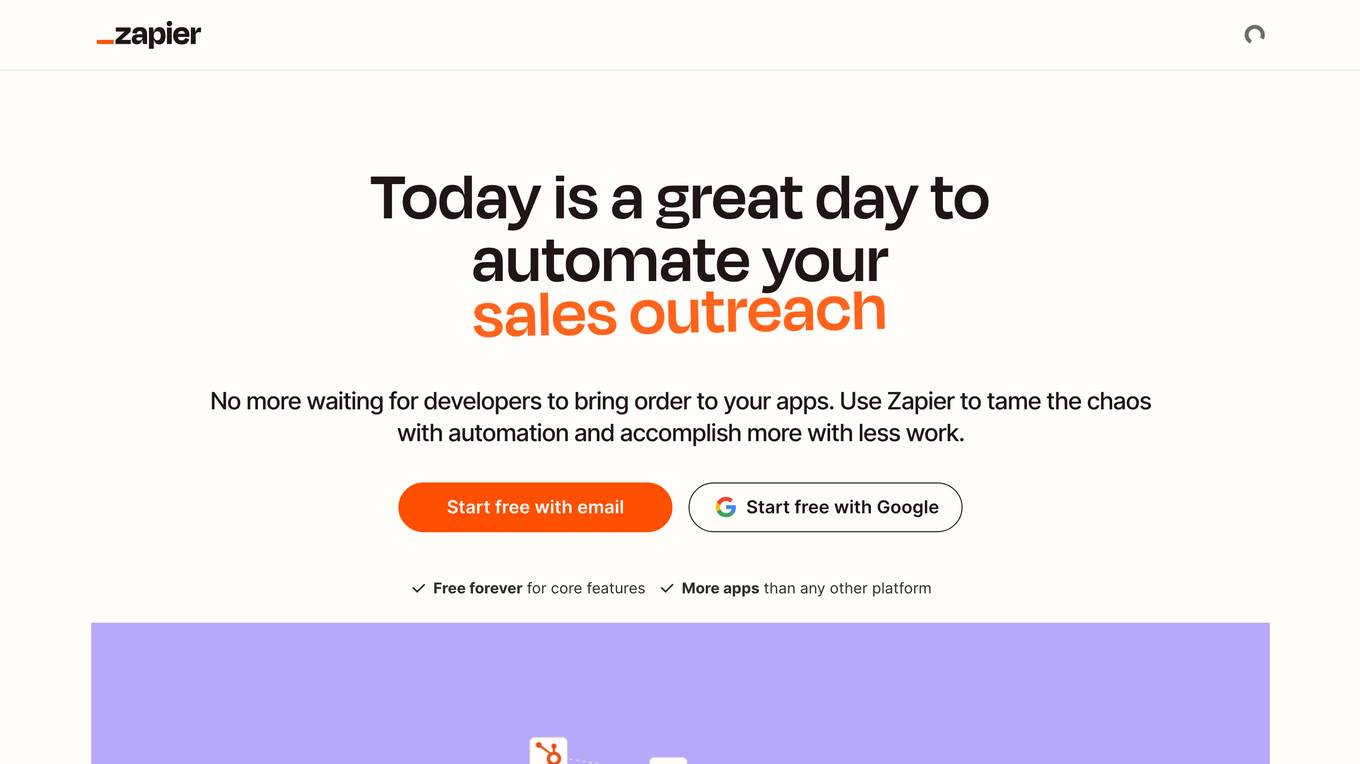
Zapier
Zapier is a cloud-based automation platform that allows users to connect different apps and services to automate tasks and workflows. It offers a wide range of integrations with popular apps and services, including Salesforce, Gmail, Slack, and Dropbox. Zapier is designed to be easy to use, even for non-technical users, and it offers a variety of features to help users create and manage their automations. These features include a drag-and-drop interface, pre-built templates, and support for custom code. Zapier is used by businesses of all sizes to automate a wide range of tasks, including lead generation, customer support, and data management.
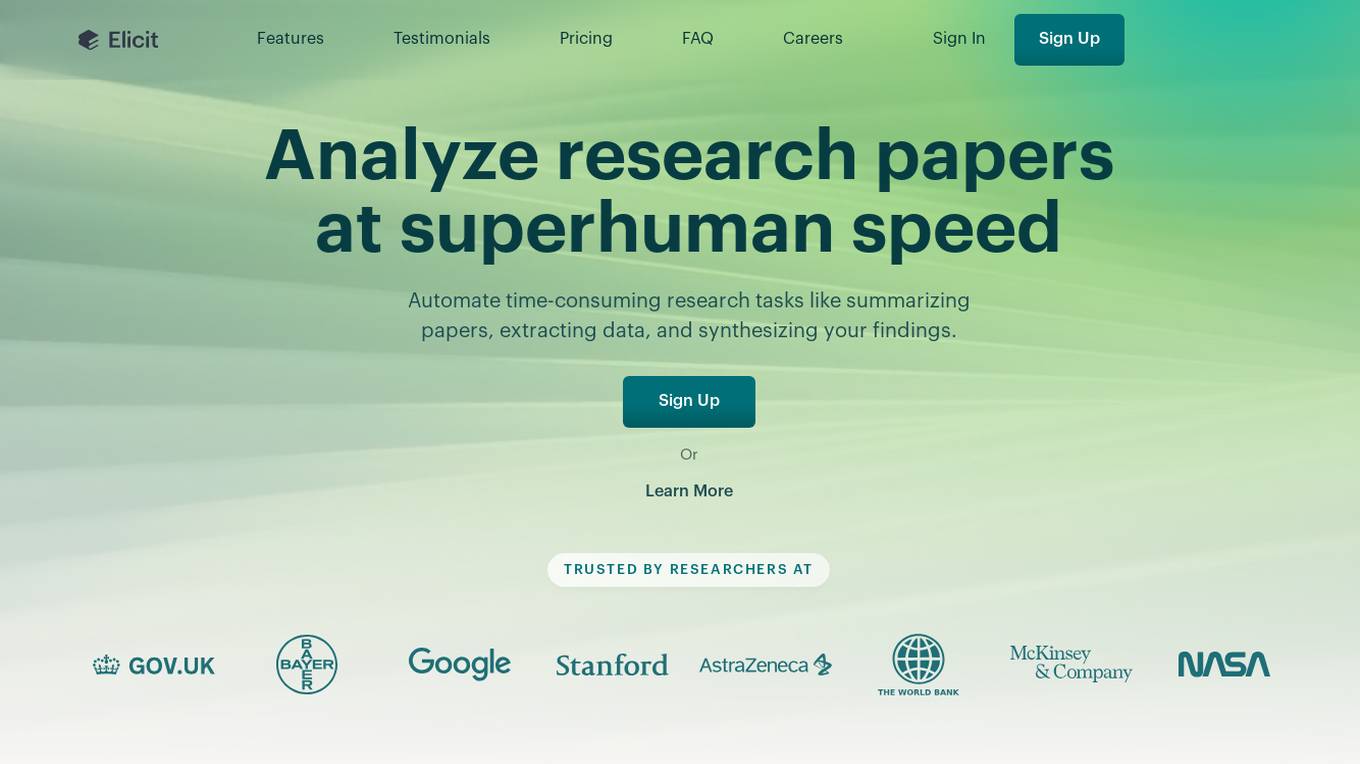
Elicit
Elicit is an AI research assistant that helps researchers analyze research papers at superhuman speed. It automates time-consuming research tasks such as summarizing papers, extracting data, and synthesizing findings. Trusted by researchers, Elicit offers a plethora of features to speed up the research process and is particularly beneficial for empirical domains like biomedicine and machine learning.
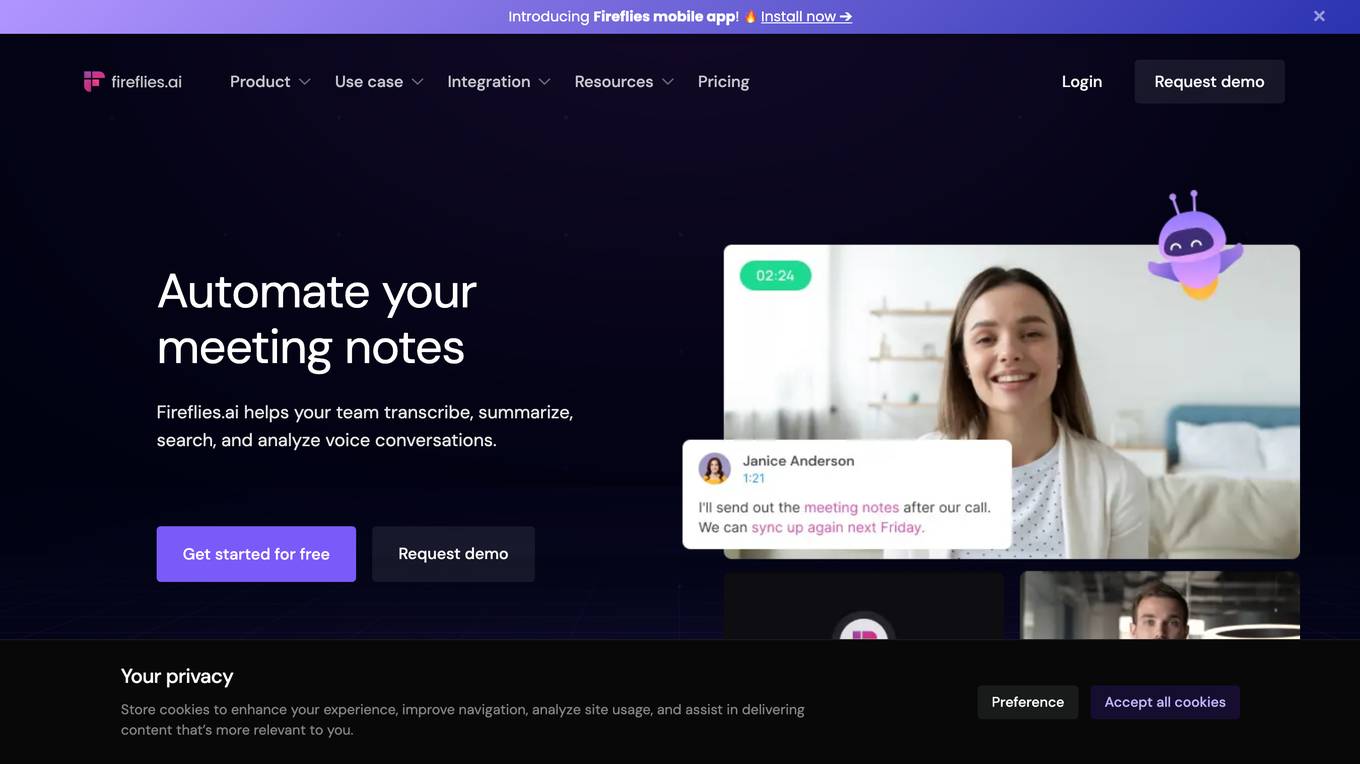
Fireflies.ai
Fireflies.ai is an AI-powered notetaker that helps teams transcribe, summarize, search, and analyze voice conversations. It integrates with popular video conferencing apps and dialers, allowing users to automatically record and transcribe meetings. Fireflies.ai also offers advanced features such as AI-powered search, collaboration tools, and conversation intelligence, enabling teams to quickly find key information, collaborate on meeting notes, and gain insights from their conversations.
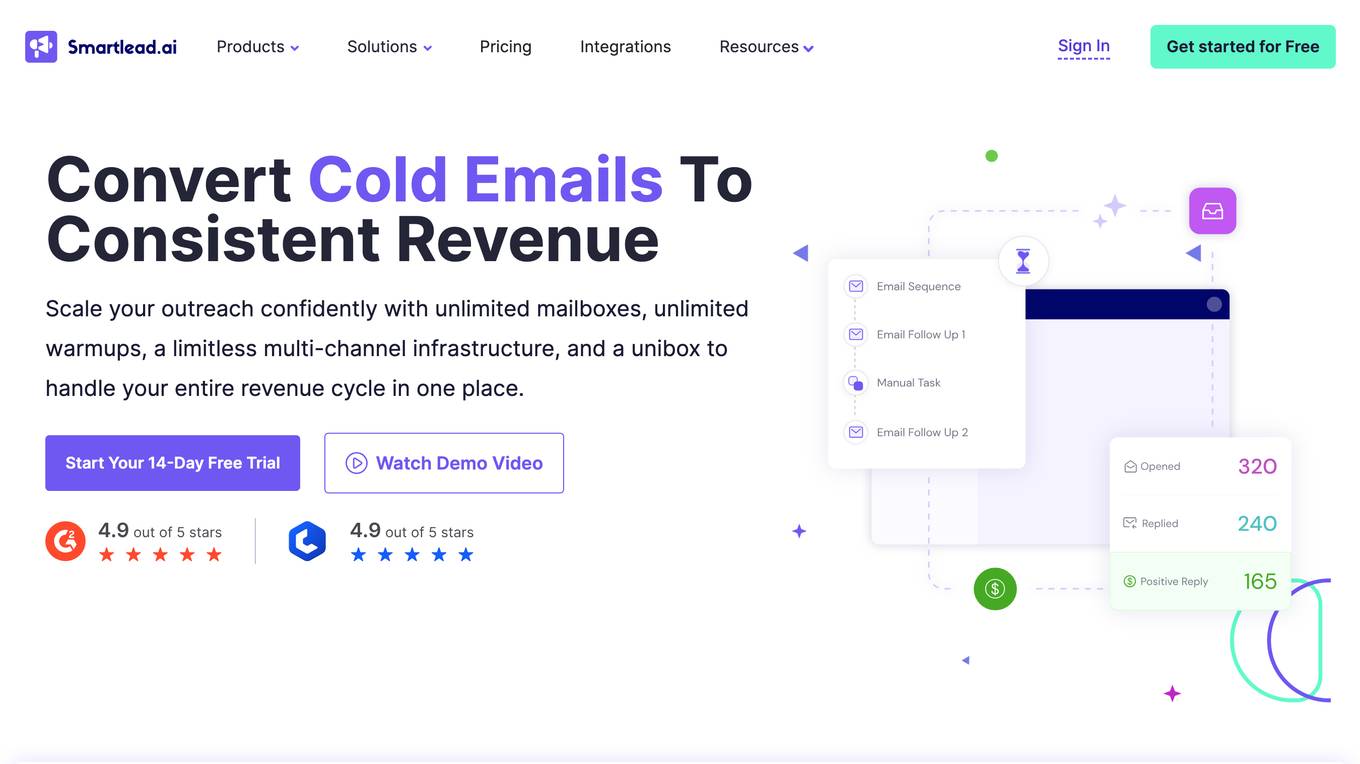
Smartlead
Smartlead is an AI-powered cold email outreach tool designed to help businesses scale their outreach efforts seamlessly. With features like unlimited mailboxes, email warmups, multi-channel infrastructure, and a unified master inbox, Smartlead empowers users to manage their entire revenue cycle in one place. The platform offers powerful APIs, automation, and white labeling options to build long-lasting relationships with clients and boost email deliverability. Smartlead caters to lead generation agencies, marketing agencies, sales leaders, recruiters, and more, providing versatile solutions for a variety of industries.
1 - Open Source AI Tools
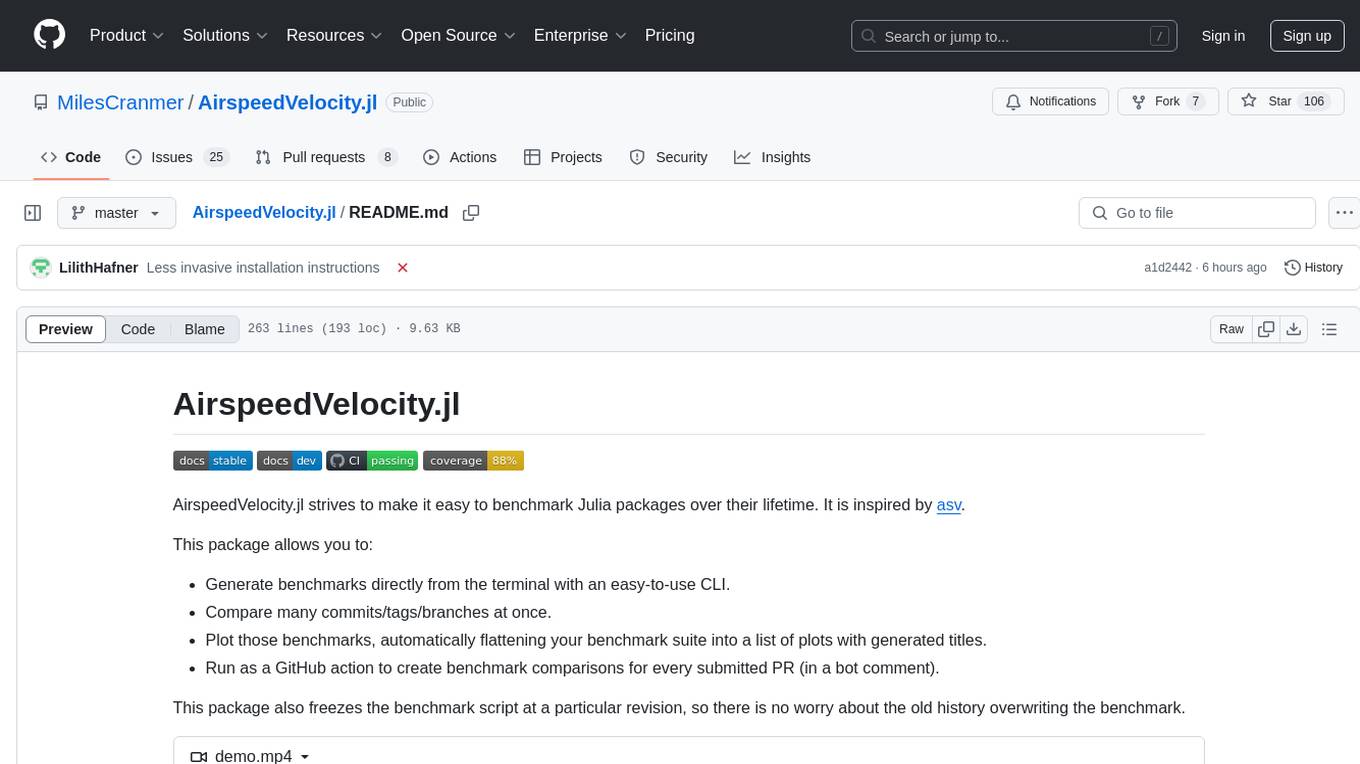
AirspeedVelocity.jl
AirspeedVelocity.jl is a tool designed to simplify benchmarking of Julia packages over their lifetime. It provides a CLI to generate benchmarks, compare commits/tags/branches, plot benchmarks, and run benchmark comparisons for every submitted PR as a GitHub action. The tool freezes the benchmark script at a specific revision to prevent old history from affecting benchmarks. Users can configure options using CLI flags and visualize benchmark results. AirspeedVelocity.jl can be used to benchmark any Julia package and offers features like generating tables and plots of benchmark results. It also supports custom benchmarks and can be integrated into GitHub actions for automated benchmarking of PRs.
20 - OpenAI Gpts
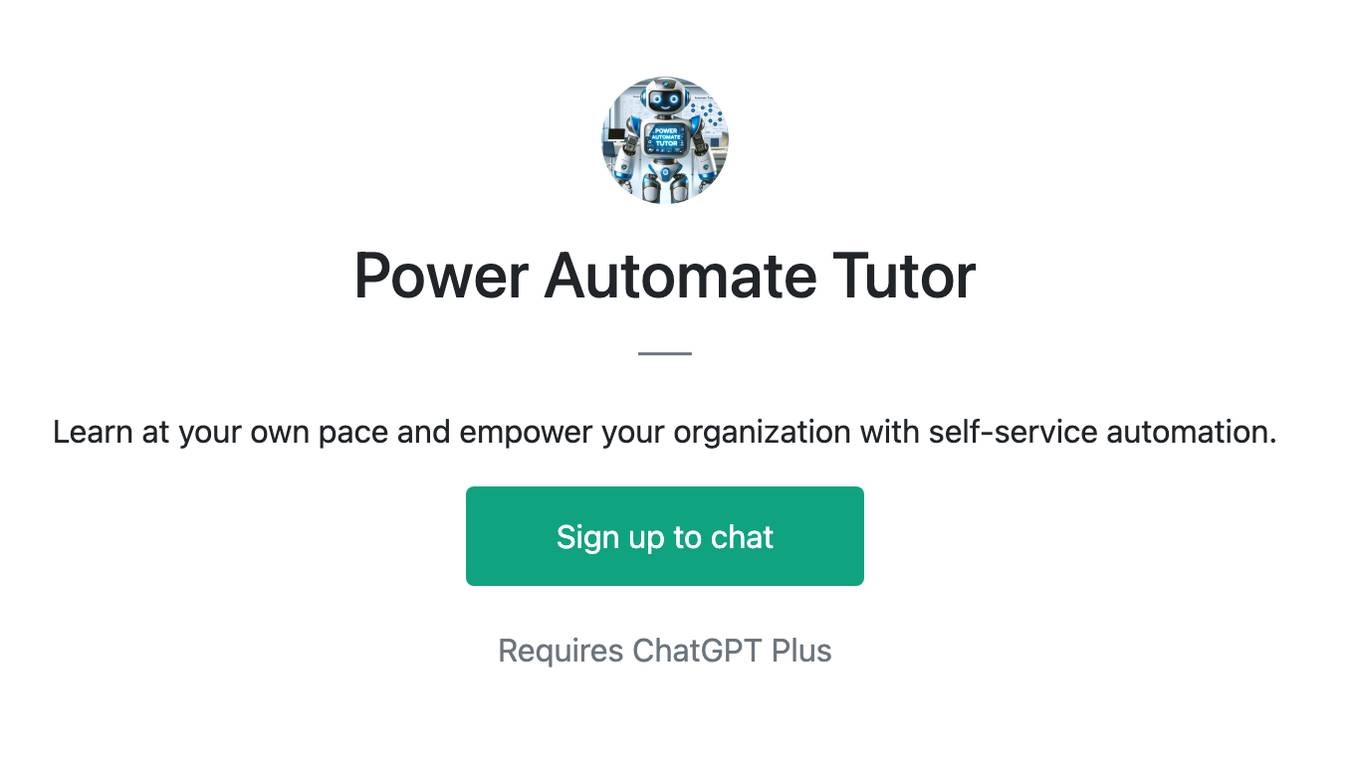
Power Automate Tutor
Learn at your own pace and empower your organization with self-service automation.

Self Builder
I automate GPT creation, saving + 99% time and securing data, preventing someone steal your idea.
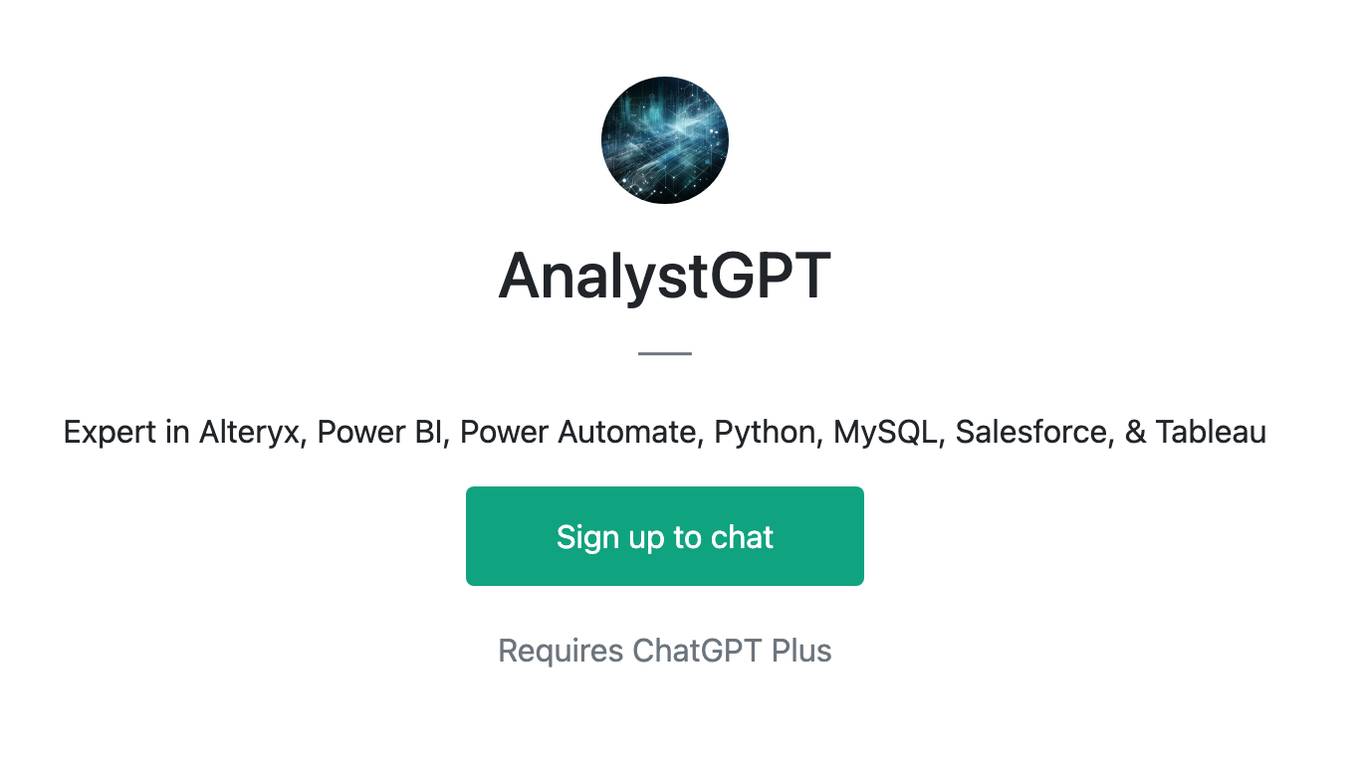
AnalystGPT
Expert in Alteryx, Power BI, Power Automate, Python, MySQL, Salesforce, & Tableau
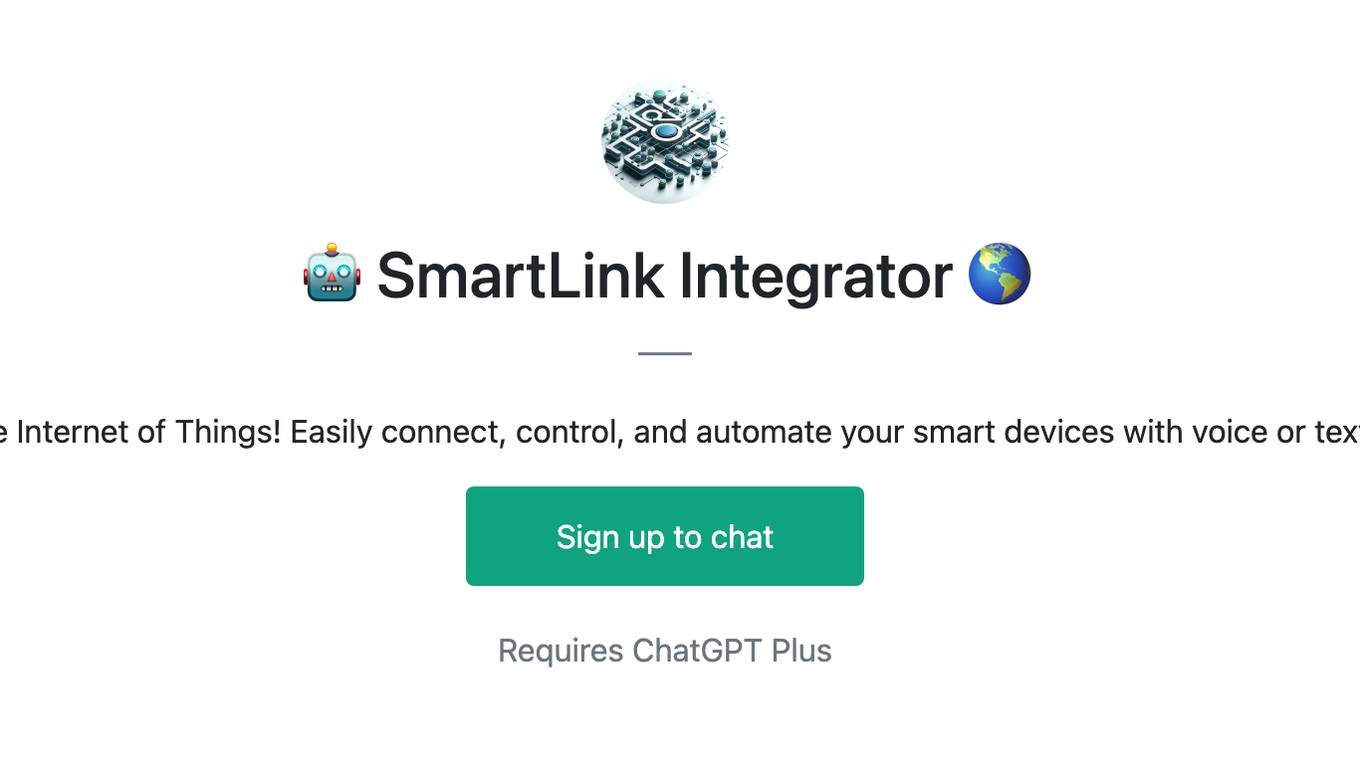
🤖 SmartLink Integrator 🌎
Your AI bridge to the Internet of Things! Easily connect, control, and automate your smart devices with voice or text commands. 🏠💎
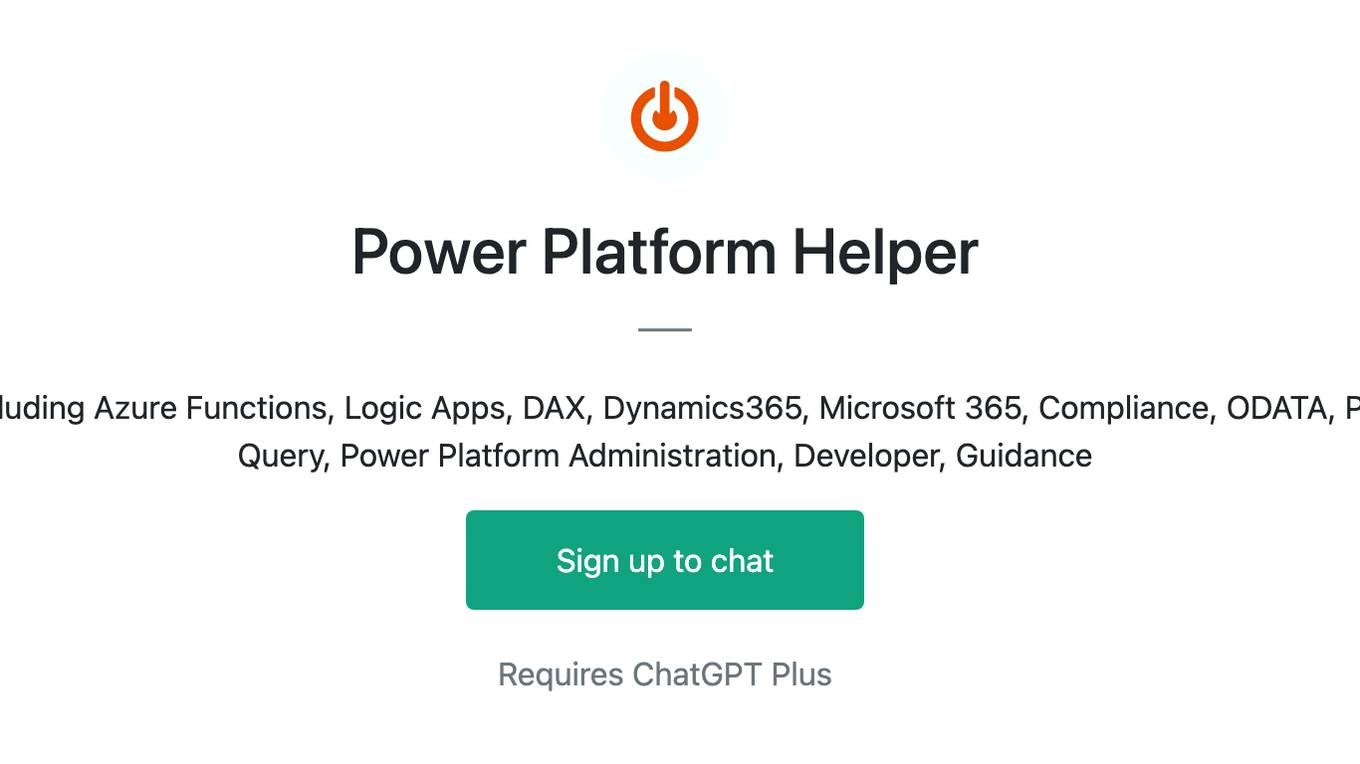
Power Platform Helper
Trained on learn.microsoft.com content including Azure Functions, Logic Apps, DAX, Dynamics365, Microsoft 365, Compliance, ODATA, Power Agents, Apps, Automate, BI, Pages, Query, Power Platform Administration, Developer, Guidance
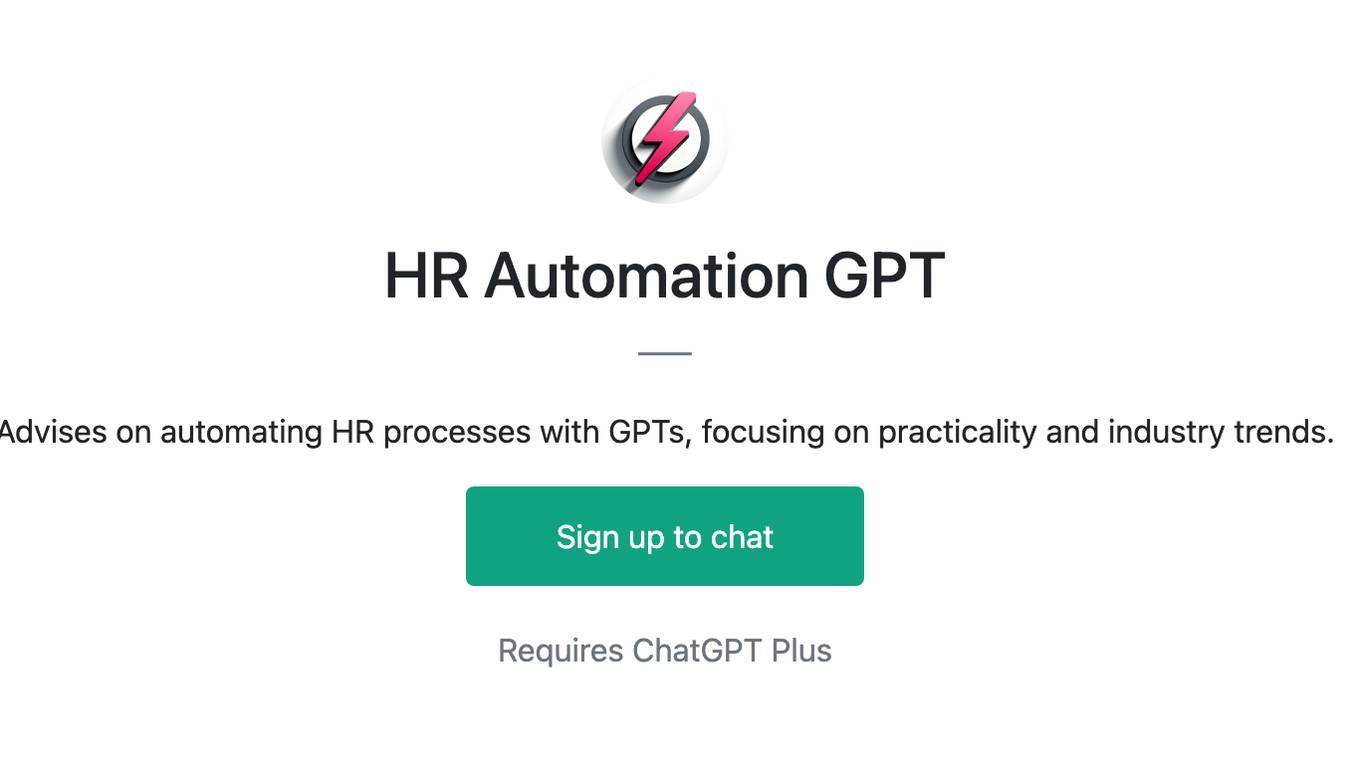
HR Automation GPT
Advises on automating HR processes with GPTs, focusing on practicality and industry trends.
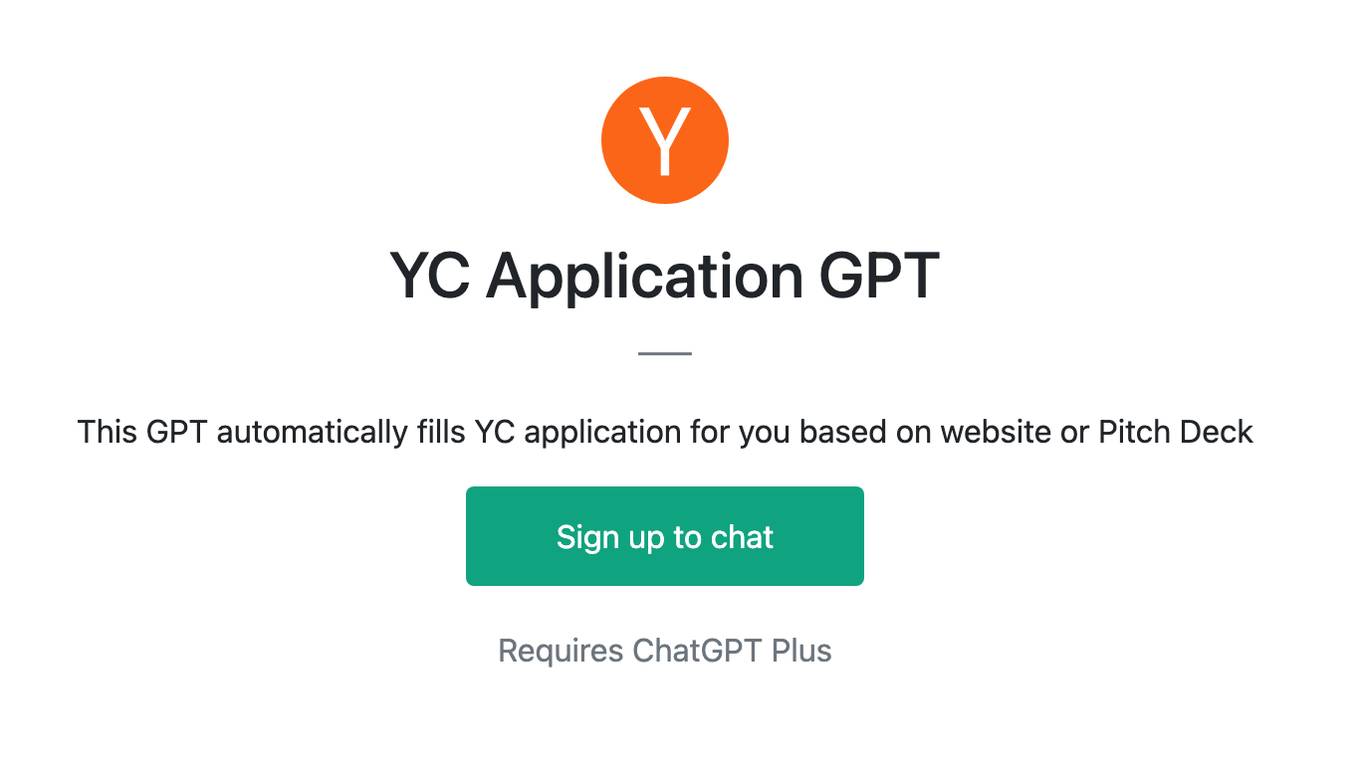
YC Application GPT
This GPT automatically fills YC application for you based on website or Pitch Deck
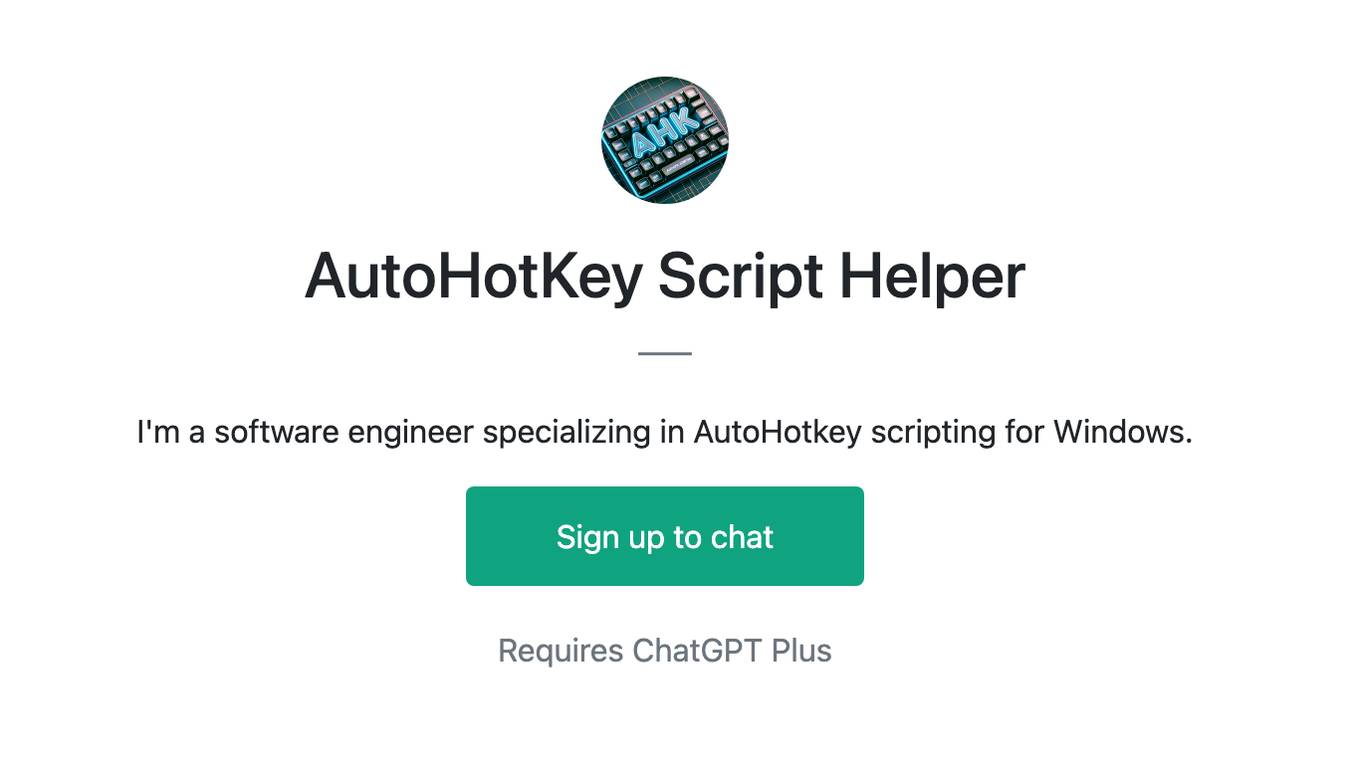
AutoHotKey Script Helper
I'm a software engineer specializing in AutoHotkey scripting for Windows.
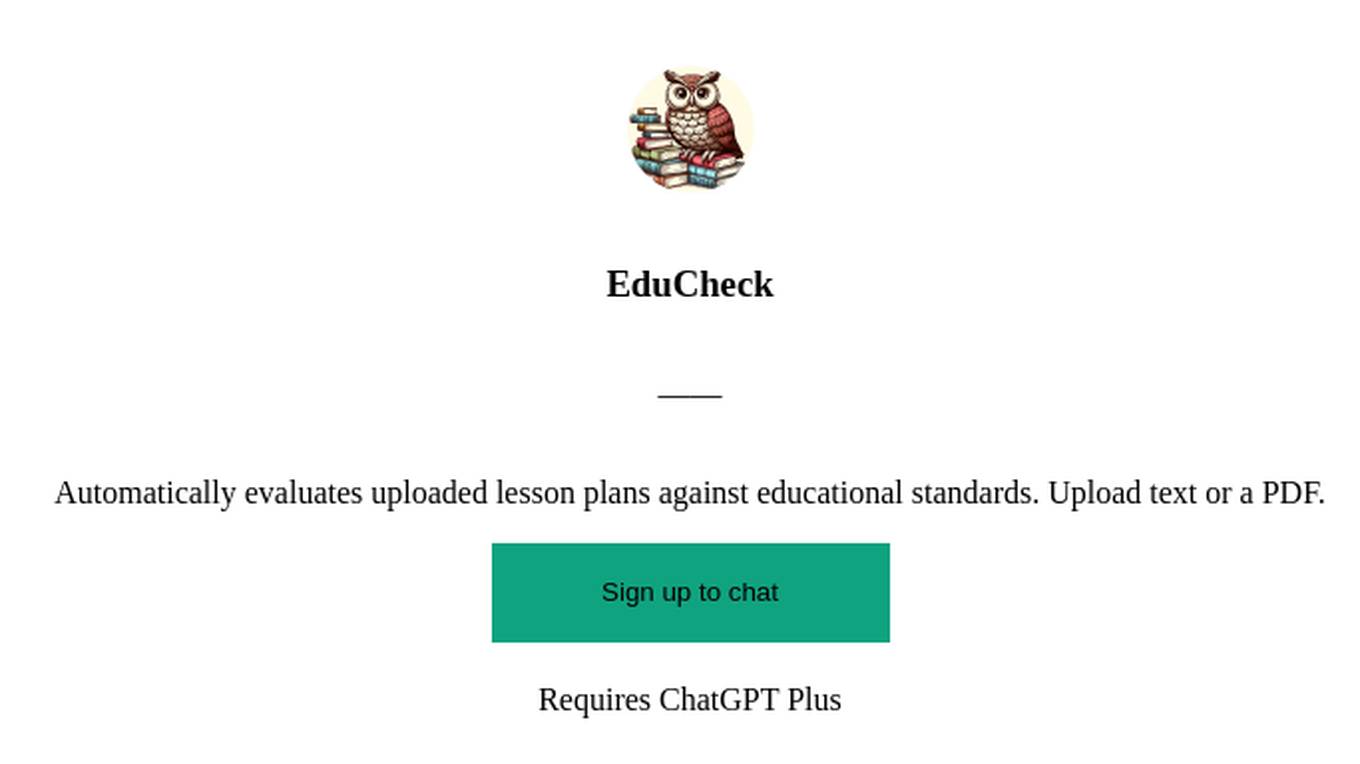
EduCheck
Automatically evaluates uploaded lesson plans against educational standards. Upload text or a PDF.
